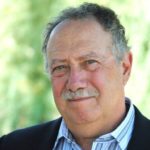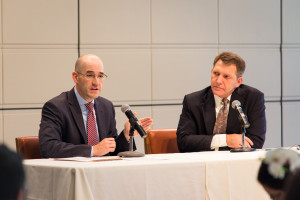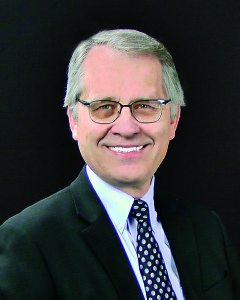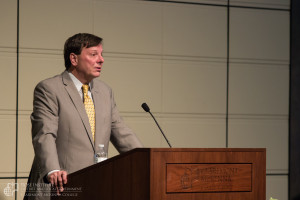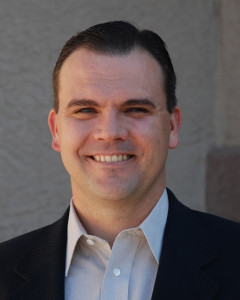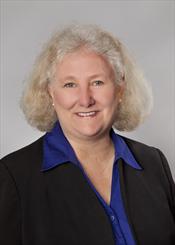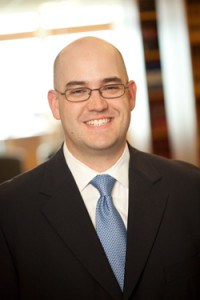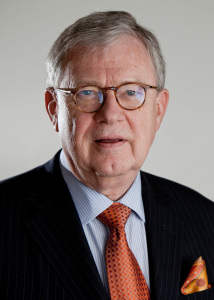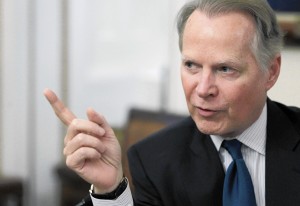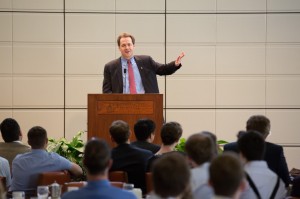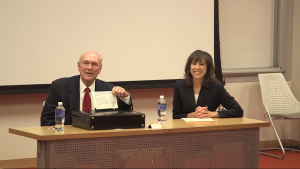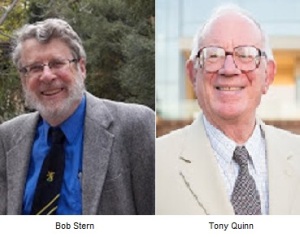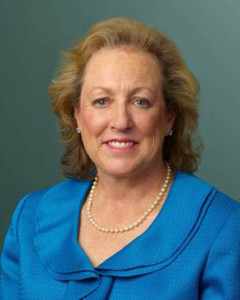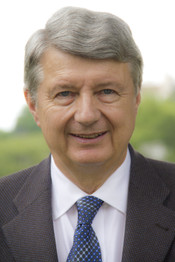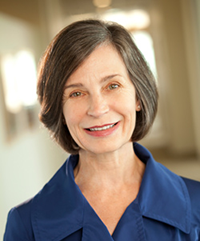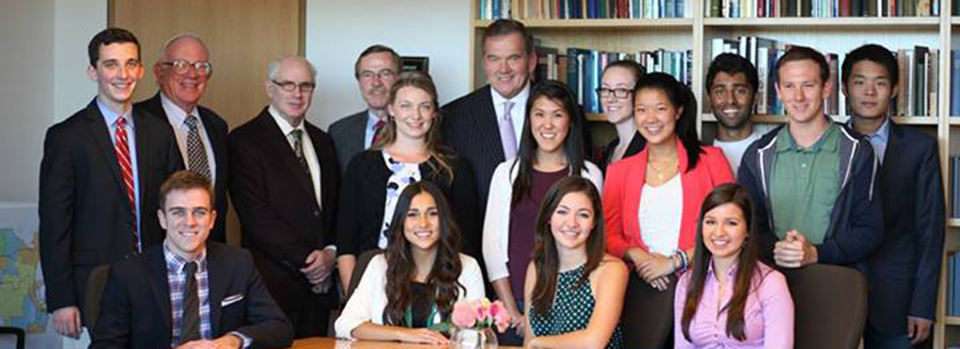Note: Meals at the Athenaeum are available only to CMC students, staff, and faculty. Only the presentations are open to the public. Immediately following the dinner, presentations start at 12:30 for midday programs and 6:45 for evening programs.
Students and CMC Faculty & Staff – To sign up with the Athenaeum
Other guests: Contact Rose Institute – If not a CMC Staff or student, or for “by invitation only” events:
Fall 2024
ANDREW SINCLAIR
The Tiger and the Octopus: Political Reform, New York, California, and the Crisis of American Politics
Monday, November 18, 2024 | MMC Athenaeum | Dinner program
Andrew Sinclair ’08 is an Assistant Professor at Claremont McKenna College. He completed his PhD at Caltech before teaching at NYU and returning to CMC. He has conducted extensive research on primary election reforms and serves as the polling director at CMC’s Rose Institute.
WILLIE L. BROWN, JR.
A Conversation with the Honorable Willie Brown
 Willie L. Brown, Jr., former two-term mayor of San Francisco and the longest-serving Speaker of the California State Assembly meets with students inside the Rose Institute on Wednesday, October 30, 2024. Brown visited the campus prior to his Athenaeum event which was co-hosted by Kravis Lab for Civic Leadership.
Willie L. Brown, Jr., former two-term mayor of San Francisco and the longest-serving Speaker of the California State Assembly meets with students inside the Rose Institute on Wednesday, October 30, 2024. Brown visited the campus prior to his Athenaeum event which was co-hosted by Kravis Lab for Civic Leadership.
KEN MILLER & THE ROSE INSTITUTE STUDENTS
California’s Choices: 2024 Ballot Measures
Wednesday, October 9, 2024 | MMC Athenaeum | Dinner program

Californians will vote on ten statewide ballot propositions this fall. The outcome of these measure will shape state policy regarding the minimum wage, criminal penalties, involuntary servitude, the right to marry, rent control, low-income housing, bond funding for schools and environmental projects, and more. Many of these proposals are hard to understand and cause voters to throw up their hands in frustration.
For more than a decade, the Rose Institute has helped voters overcome their confusion by providing non-partisan, objective, accessible guides to the state ballot, These guides include both longer form “backgrounders” and short informational “video voter guides.”
Spring 2024
ANTHONY RENDON
The Policies and Politics of California
Friday, February 28, 2024 | MMC Athenaeum | Lunch Program
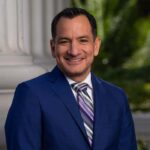
Anthony Rendon, Speaker Emeritus of the California State Assembly, shares his journey from struggling high school student to second longest-serving Speaker in California history and gives an inside look at California’s complex policies and politics.
Speaker Emeritus Rendon is representing an Assembly district in Southeastern Los Angeles County. He served as Speaker from 2016 until 2023, the second-longest speakership in California history. In his seven years as Speaker, he helped build a three-quarters Democratic supermajority in the legislature—what he called a “gigamajority.” Rendon also led some of the most progressive and productive legislative sessions in the state’s history, solidifying California’s reputation as a national leader on a range of policy issues. Politico described his speakership as “one of California’s most consequential” which presided over a “progressive policy bonanza.”
Rendon is a native Southern Californian. After graduating from high school he worked in warehouses and other manual jobs, then pursued higher education, eventually earning a Ph.D. from U.C. Riverside. Prior to serving in the Assembly, he worked as an educator, non-profit executive director, and environmental activist.
TANI CANTIL-SAKAUYE
A Task for Us All: Promoting Civic Engagement
Wednesday, April 10, 2024 | MMC Athenaeum | Lunch Program
 Tani Cantil-Sakauye is president and CEO of the Public Policy Institute of California, where she holds the Walter and Esther Hewlett Chair in Understanding California’s Future. From 2011 to 2022, she served as the 28th Chief Justice of California and led the judiciary as the chair of the Judicial Council—the constitutional policy and rule-making body of the judicial branch—the first person of color and the second woman to do so. Before she was elected statewide as the Chief Justice of California, she served more than 20 years on California appellate and trial courts and was appointed or elevated to higher office by three governors. Earlier in her career, she served as a deputy district attorney for the Sacramento County District Attorney’s Office and on the senior staff of Governor Deukmejian, first as deputy legal affairs secretary and later as a deputy legislative secretary. She holds a BA and a JD from the University of California, Davis.
Tani Cantil-Sakauye is president and CEO of the Public Policy Institute of California, where she holds the Walter and Esther Hewlett Chair in Understanding California’s Future. From 2011 to 2022, she served as the 28th Chief Justice of California and led the judiciary as the chair of the Judicial Council—the constitutional policy and rule-making body of the judicial branch—the first person of color and the second woman to do so. Before she was elected statewide as the Chief Justice of California, she served more than 20 years on California appellate and trial courts and was appointed or elevated to higher office by three governors. Earlier in her career, she served as a deputy district attorney for the Sacramento County District Attorney’s Office and on the senior staff of Governor Deukmejian, first as deputy legal affairs secretary and later as a deputy legislative secretary. She holds a BA and a JD from the University of California, Davis.
HOUSING POLICY SYMPOSIUM:
Is Policy Leading to Production?
 State and local officials will discuss California’s progress providing a policy framework to produce more housing, and will examine what legislation is helping versus dampening this goal.
State and local officials will discuss California’s progress providing a policy framework to produce more housing, and will examine what legislation is helping versus dampening this goal.
Moderated by Governor Gray Davis (Ret.), and featuring Holly J. Mitchell, Los Angeles County Supervisor; State Senator Scott Wiener; Assemblymember Buffy Wicks; Assemblymember Sharon Quirk-Silva; Jason Elliott, Deputy Chief of Staff to Governor Newsom; Tomiquia Moss, Secretary of Business, Consumer Services and Housing Agency; Jenna Hornstock, Senior Advisor for Housing for Mayor Bass; Long Beach Councilmember Megan Kerr; Claremont Councilmember Jed Leano; Placentia City Administrator Damien Arrula; Whittier City Manager Brian Saeki; and John Reekstin, Executive VP of Community Development of The Olson Company.
The first Governor Davis Housing Leadership Award was presented to the City of Long Beach.
This event was co-hosted by The Olson Company.
Spring 2023
KENNETH P. MILLER
A California Paradox
Friday, April 28, 2023 | MMC Athenaeum | Lunch Program
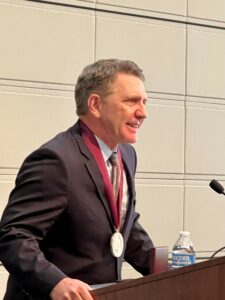 The Rose Institute of State and Local Government was founded at CMC 50 years ago to advance the study of state and local government, politics, and policy, with a focus on California. Over the past half-century, California has experienced sweeping demographic, economic, cultural, and political changes. The state has emerged from these changes as a paradox–flourishing on a grand scale yet beset by enormous and worsening problems. One could say California is a disastrous success. In this talk, Ken Miller will discuss how the paradox has developed –and also, how today the Rose Institute is seeking to promote a positive future for the Golden State.
The Rose Institute of State and Local Government was founded at CMC 50 years ago to advance the study of state and local government, politics, and policy, with a focus on California. Over the past half-century, California has experienced sweeping demographic, economic, cultural, and political changes. The state has emerged from these changes as a paradox–flourishing on a grand scale yet beset by enormous and worsening problems. One could say California is a disastrous success. In this talk, Ken Miller will discuss how the paradox has developed –and also, how today the Rose Institute is seeking to promote a positive future for the Golden State.
Following this talk, Rose Institute director Ken Miller is awarded the Don H. & Edessa Rose Professor of State and Local Government by the Dean of the Faculty, Heather Antecol. Below is the video of his talk and the award ceremony.
https://app.frame.io/r/48ca4027-5ba5-41d3-988b-57b61b2c9ed3
HOUSING POLICY SYMPOSIUM
Aligning City and State Housing Policy
Friday, March 24, 2023 | MMC Athenaeum | 10:00 AM-Noon

Honorable Governor Gray Davis (Ret.) moderated a panel of state and local politicians and city managers who examined the current disparity between city and state housing policy. A lack of housing affordability is forcing the middle class and jobs to leave California. Can cities and the State work together to incentivize housing production? What can be done to encourage cooperation in light of the recent State housing policy?
The welcome remarks were delivered by Janice Hahn, Chair, LA County Board of Supervisors, District 4. The speaker panel included: John Reekstin, Sr. VP of Community; Development, The Olson Company; Isadore Hall, III., CA State Senator, 35th District (Retired); Joe Vinatieri, Mayor, City of Whittier; Scott Ochoa, City Manager, City of Ontario; Dan Kalmick, City Council Member, City of Huntington Beach; and Autumn Burke, Former Assemblymember, District 62. The luncheon speakers were Buffy Wicks, Assemblymember, District 14 and Cottie Petrie-Norris, Assemblymember, District 73
This event was co-hosted by the Olson Company.
WATCH THE VIDEO
MARIANO-FLORENTINO (TINO) CUÉLLAR
Global Policy Inside Out
Monday, February 27, 2023 | MMC Athenaeum | Dinner program
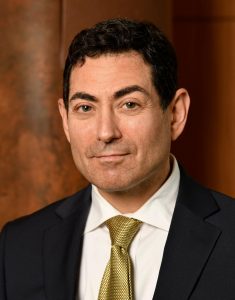
People throughout the world are experiencing the consequences of geopolitical upheaval, evolving technologies, and planet-wide environmental changes. In the United States and abroad, policymakers and the public are responding by focusing renewed attention on how diplomats, national security officials, and multinational corporations are navigating challenges involving international conflict and cooperation, global political economy, and cross-border problems. But lurking within the United States are certain entities that rarely receive the attention they deserve as potential drivers of cross-border policy developments: sub-national jurisdictions like California and key domestic institutions like the U.S. Supreme Court.
From judicial institutions to major states to dynamic metropolitan regions, the American approach to what has been historically termed “foreign policy” will depend in no small measure on how judges reshape the powers of major executive agencies with the potential to affect the international position of the United States how states like California, Texas, and Massachusetts seek to drive technological innovation and influence climate, energy, and technology policy; and how major metropolitan regions approach challenges in domains such as innovation, sustainability, immigrant integration, and law enforcement. Rising awareness of cross-border governance challenges, coupled with limitations in the speed and efficacy of policymaking in national executive and legislative institutions, have made it easier to appreciate (and perhaps even heightened) the importance of these domestic entities. Whether the United States and other countries can productively respond to and in some cases channel these “inside” drivers of international policy will have a lasting impact on how countries and communities throughout the world manage cross-border risks and opportunities.
Mr. Cuéllar is the tenth president of the Carnegie Endowment for International Peace. A former justice of the Supreme Court of California, he served two U.S. presidents at the White House and in federal agencies and was a faculty member at Stanford University for two decades. He is a member of the U.S. Department of State’s Foreign Affairs Policy Board.
At Stanford, he was the Stanley Morrison Professor of Law and (by courtesy) Political Science. He directed the university’s Freeman Spogli Institute for International Studies, and previously, co-directed its Center for International Security and Cooperation. During nearly seven years on California’s highest court, while continuing to teach at Stanford, he wrote opinions addressing the separation of powers and federalism, policing and criminal justice, democracy, technology, and privacy, international agreements, and climate and environmental policy among other issues, and led the court system’s efforts to better meet the needs of millions of limited English speakers.
A member of the American Academy of Arts and Sciences, Cuéllar has published widely on American institutions and public law, international affairs, political economy, and technology’s impact on law and government. In the first term of the Obama administration, he led the White House Domestic Policy Council’s teams working on civil and criminal justice, public health, immigration, and regulatory reform. He also co-chaired the U.S. Department of Education’s Equity and Excellence Commission, and earlier, co-chaired the Obama-Biden Transition Immigration Working Group. He began his career at the U.S. Department of the Treasury in the second term of the Clinton administration.
He chairs the board of the William & Flora Hewlett Foundation and serves on Harvard University’s primary governing board (the Harvard Corporation). Previously, he chaired the boards of the Center for Advanced Study in the Behavioral Sciences and the Stanford Institute for Innovation in Developing Economies. He served on the National Academy of Sciences Committee on Social and Ethical Implications of Computing Research and was a presidential appointee to the Council of the U.S. Administrative Conference. Born in Matamoros, Mexico, he grew up primarily in communities along the U.S.-Mexico border. He graduated from Harvard College and Yale Law School and received a Ph.D. in political science from Stanford University.
Fall 2022
NICOLAS HEIDORN ’06 and KEN MILLER
California’s Choices: 2022 Ballot Measures
Wednesday, September 28, 2022 | MMC Athenaeum | Dinner program
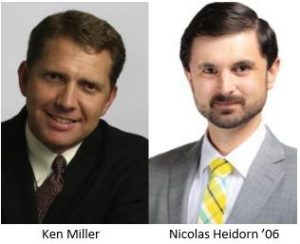 Exercising the power to determine important policy issues by direct popular vote, this fall Californians will vote on seven ballot measures covering a broad range of subjects including a measure to change the California Constitution to expressly include existing rights to reproductive freedom, two measures on sports betting, and a measure to increase the income tax on high earners. Nicolas Heidorn ’06, former policy director for California Common Cause, and Ken Miller, professor of government at CMC and director of the Rose Institute, will provide expert analysis of these consequential choices and will also present the Video Voter series of informational videos produced by Rose Institute students.
Exercising the power to determine important policy issues by direct popular vote, this fall Californians will vote on seven ballot measures covering a broad range of subjects including a measure to change the California Constitution to expressly include existing rights to reproductive freedom, two measures on sports betting, and a measure to increase the income tax on high earners. Nicolas Heidorn ’06, former policy director for California Common Cause, and Ken Miller, professor of government at CMC and director of the Rose Institute, will provide expert analysis of these consequential choices and will also present the Video Voter series of informational videos produced by Rose Institute students.
Nicolas Heidorn ’06 is the founder of Heidorn Consulting, a firm that specializes in state and local policy and advocacy. He was formerly the policy director for California Common Cause, where he led the organization’s legislative advocacy in Sacramento. He was also the founder and director of the California Local Redistricting Project, which was a joint Common Cause-McGeorge School of Law effort to promote local redistricting best practices. With over a decade of experience advocating for voting and governance reforms, particularly in local government, Heidorn drafted Senate Bill 1108 (Allen, 2016), which for the first time authorized all California general law cities and counties to adopt independent citizens redistricting commissions. He has assisted several jurisdictions in setting up their own local commissions. Representing Common Cause, he was also part of the coalition that passed Assembly Bill 849 (Bonta, 2019), which adopted new criteria and public engagement requirements for city and county redistricting.
Prior to joining Common Cause, Heidorn served as assistant general counsel at the California Environmental Protection Agency, a position he was appointed to by Governor Brown in 2013. Before that, he worked in the State Legislature for State Senator Mark Ridley-Thomas and on the Proposition 11 campaign, which established California’s state Citizens Redistricting Commission.
A former fellow with New America California, Heidorn received his B.A. from Claremont McKenna College and his J.D. from Harvard Law School.
Professor Miller and Mr. Heidorn’s Athenaeum event is co-sponsored by the Rose Institute of State and Local Government.
ADITYA PAI ’13 and ILAN WURMAN ’09; NOHL PATTERSON’12 (Moderator)
Resolution: This House Should Abolish the Electoral College
Thursday, October 13, 2022 | MMC Athenaeum | Dinner program
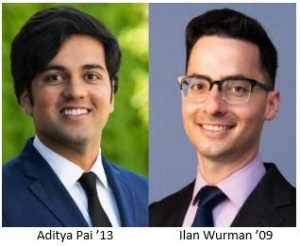 On November 2016, Donald Trump defeated Hillary Clinton in the U.S. presidential election despite losing the popular vote by almost 2.9 million votes. The result spurred a national conversation about the Electoral College—a distinctively American mechanism for selecting a head of state and of government. While the system has roots in America’s founding, many have called for a modern rethinking and revision of what they see as an arcane, ineffective, and unjust electoral structure. Given both its storied constitutional history and evident shortcomings, should the United States abolish the Electoral College? Debating this issue are Aditya Pai ’13, attorney at Rutan & Tucker, and Ilan Wurman ’09, professor of law at Arizona State University and, both CMC and Rose Institute alumni. Event attendees will vote either in favor or against the resolution ” This House should abolish the Electoral College” both before and after the debate.
On November 2016, Donald Trump defeated Hillary Clinton in the U.S. presidential election despite losing the popular vote by almost 2.9 million votes. The result spurred a national conversation about the Electoral College—a distinctively American mechanism for selecting a head of state and of government. While the system has roots in America’s founding, many have called for a modern rethinking and revision of what they see as an arcane, ineffective, and unjust electoral structure. Given both its storied constitutional history and evident shortcomings, should the United States abolish the Electoral College? Debating this issue are Aditya Pai ’13, attorney at Rutan & Tucker, and Ilan Wurman ’09, professor of law at Arizona State University and, both CMC and Rose Institute alumni. Event attendees will vote either in favor or against the resolution ” This House should abolish the Electoral College” both before and after the debate.
Aditya Pai ’13 is a trial attorney at Rutan & Tucker, LLP., where he represents owners, general contractors, and subcontractors in the construction industry as well as non-profits. He is an Urban Land Institute (ULI) under 35 Young Leader and serves in board advisory roles at Dev/Mission, a youth workforce development non-profit, and Habitat for Humanity Orange County. Prior to entering law practice, Pai interned for Montana Governor Steve Bullock and U.S. Senator Mark Warner. He earned a J.D. from Harvard, M. Phil. from Cambridge, and B.A. from Claremont McKenna College, where he served as manager of the Rose Institute of State and Local Government and student body president.
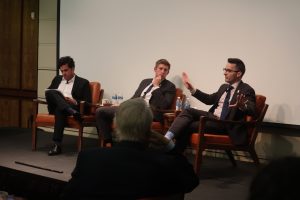 Ilan Wurman ’09 is an associate professor at the Sandra Day O’Connor College of Law at Arizona State University, where he teaches administrative law and constitutional law. He writes on administrative law, separation of powers, and constitutionalism, and his academic writing has appeared in the Yale Law Journal, the Stanford Law Review, the University of Chicago Law Review, the University of Pennsylvania Law Review, the Duke Law Journal, and the Texas Law Review among other journals. He is also the author of A Debt Against the Living: An Introduction to Originalism (Cambridge 2017), and The Second Founding: An Introduction to the Fourteenth Amendment (Cambridge 2020). Prior to entering academia, Wurman clerked for the Honorable Jerry E. Smith on the U.S. Court of Appeals for the Fifth Circuit and practiced law for three-and-a-half years at Winston & Strawn in Washington, D.C. He also served as deputy general counsel on Rand Paul’s U.S. presidential campaign in 2015 and as associate counsel on Tom Cotton’s U.S. Senate campaign in 2014. He is a graduate of Stanford Law School and Claremont McKenna College.
Ilan Wurman ’09 is an associate professor at the Sandra Day O’Connor College of Law at Arizona State University, where he teaches administrative law and constitutional law. He writes on administrative law, separation of powers, and constitutionalism, and his academic writing has appeared in the Yale Law Journal, the Stanford Law Review, the University of Chicago Law Review, the University of Pennsylvania Law Review, the Duke Law Journal, and the Texas Law Review among other journals. He is also the author of A Debt Against the Living: An Introduction to Originalism (Cambridge 2017), and The Second Founding: An Introduction to the Fourteenth Amendment (Cambridge 2020). Prior to entering academia, Wurman clerked for the Honorable Jerry E. Smith on the U.S. Court of Appeals for the Fifth Circuit and practiced law for three-and-a-half years at Winston & Strawn in Washington, D.C. He also served as deputy general counsel on Rand Paul’s U.S. presidential campaign in 2015 and as associate counsel on Tom Cotton’s U.S. Senate campaign in 2014. He is a graduate of Stanford Law School and Claremont McKenna College.
This program is co-sponsored by the Rose Institute and Dreier Roundtable, whose mission is to inspire public service.
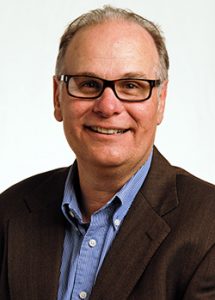 LARRY MANTLE P’23
LARRY MANTLE P’23
Talk Radio: A Political, Cultural and Social Force
Wednesday, November 16, 2022 | MMC Athenaeum | Dinner program
In an era of 24-hour hyper-partisan cable television and a deluge of podcasts all over the ideological map, talk radio shows have become few and far between, especially on public radio. despite fewer listeners tuning in to the airwaves, some radio talk shows however are still influential and have loyal followings. Larry Mantle P’23, host of KPCC’s long-running AirTalk with Larry Mantle joins us for a moderated conversation about how talk radio has evolved during his 37-year career in the medium, the influence it continues to hold over political, cultural, and social issues, and how to keep it relevant in the digital age.
Since 1985 Larry Mantle P’23 has hosted AirTalk, the longest continuously running daily talk program in the history of Los Angeles radio, airing weekdays 10 a.m. to noon. AirTalk guests are leaders in politics, entertainment, science, health, social debate, history, and the arts and are coupled with the telephone participation of a sophisticated public radio audience. Mantle also hosts the weekly movie review and interview program Film Week Fridays at 11 a.m. and Saturdays at noon.
His awards include the Radio/TV News Association of Southern California Lifetime Achievement Award in 2019, the Radio Journalist of the Year from the Los Angeles Press Club in 2012, the Mark Twain Award from The Associated Press in 2013, and the Journalist of the Year from the Society of Professional Journalists in 2010.
Mr. Mantle’s talk is co-sponsored by the Rose Institute and Dreier Roundtable.
Spring 2022
R. MICHAEL ALVAREZ and J. ANDREW SINCLAIR
The Promise and Perils of Polling
Thursday, April 21, 2022 | MMC Athenaeum | Lunch program 12:00 PM
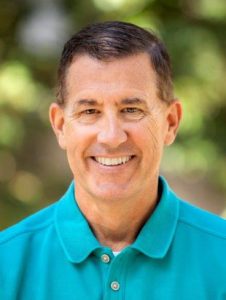
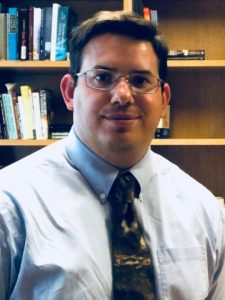
Michael Alvarez’s research focuses on public opinion and voting behavior, election technology and administration, electoral politics, political campaigns, and statistical and computational modeling. He has long been interested in empirically
testing formal models of elections and voting behavior.
Alvarez is the co-director of the Caltech/MIT Voting Technology Project. He is a fellow of the Society for Political Methodology and the American Academy of Arts and Sciences. He has been recognized for his mentoring work, both at Caltech by the Graduate Student Council (twice) and by the Society for Political Methodology. He also received the Emerging Scholar Award in the Elections, Public Opinion, and Voting Behavior Section of the American Political Science Association in 2001.
Alvarez has a BA from Carleton College and a MA and Ph.D. from Duke University.
Andrew Sinclair’s research focuses on American politics, with a particular emphasis on political reform. He is a co-author, along with Michael Alvarez, of Nonpartisan Primary Election Reform: Mitigating Mischief (Cambridge University Press, 2015). Recent work has continued to examine electoral reforms and political behavior, including a paper coauthored with Betsy Sinclair: “Primaries and Populism: Voter Efficacy, Champions, and Election Rules” (Journal of Political Institutions and Political Economy, 2(3) 2021: 365-388). In addition, he has continued to examine the democratic aspects of reform in public administration, coauthoring with Maya Love and María Gutiérrez-Vera “Federalism, Defunding the Police, and Democratic Values: A Functional Accountability Framework for Analyzing Police Reform Proposals” (Publius: The Journal of Federalism, 51(3) 2021: 484-511).
A graduate of Claremont McKenna College’s class of 2008, before returning to CMC as a member of the faculty, Sinclair earned his Ph.D. at Caltech and was a Clinical Assistant Professor at NYU’s Wagner Graduate School of Public Service.
 SARA SADHWANI
SARA SADHWANI
The California Citizens Redistricting Commission: My Experience
Friday, April 29, 2022 | MMC Athenaeum | Lunch program 12:00 PM (private event)
Sara Sadhwani will talk about her experience serving on the Citizens Redistricting Commission for the State of California, which was tasked with drawing the district boundary lines for Congress, the State Legislature, and the state Board of Equalization.
Sara Sadhwani is an assistant professor of politics at Pomona College specializing in Asian American and Latino voting behavior, elections, interest groups, and representation. Her research has been published in the peer-reviewed journals Political Behavior, PS: Political Science and Politics, California Journal of Politics and Policy, and the Journal of Race, Ethnicity, and Politics, and her analysis of elections has been featured in the Washington Post, Vox, the LA Times, and NPR affiliate KCRW-Los Angeles.
Her dissertation identified variations in voting behavior between Latinos and Asian Americans and was supported by a fellowship from the John Randolph and Dora Haynes Foundation. She is currently a faculty fellow at the USC Schwarzenegger Institute.
Spring 2021
VINAY PRASAD, MD MHP
COVID-19: Should Schools Be Open?
Thursday, March 18, 2021 | MMC Athenaeum | Virtual program 5 PM
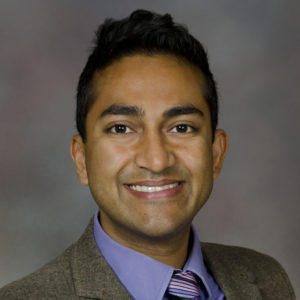
Schools present a tradeoff. When we’re open, society benefits from the essential services schools provide: education, child abuse reporting, hot meals, and socio-emotional development. Closing them may theoretically slow the viral spread. How should society decide?
Nearly every discussion or debate around COVID-19 has become protracted, political, and bitter, and what to do about schools is no exception. Over the last few months, we have reviewed the emerging evidence and reached the same conclusion: Unless the local healthcare system is approaching overload or collapse, schools should remain open.
Vinay Prasad, M.D. and M.P.H., is a practicing hematologist-oncologist and associate professor in the department of epidemiology and biostatistics at the University of California San Francisco. He studies cancer drugs, health policy, clinical trials, and better decision-making. He is the author of over 250 academic articles, and the books Ending Medical Reversal (2015), and Malignant (2020). He hosts the oncology podcast Plenary Session.
Fall 2020
JACK PITNEY
The Weirdest Election Ever
Thursday, October 29, 2020 | MMC Athenaeum | Virtual program 5 PM
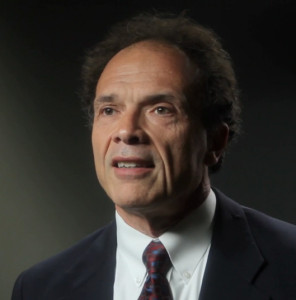
As we close out this election season, CMC’s own Jack Pitney will offer insights on this most peculiar of the presidential election cycle and his thoughts on what this year’s events might portend for the future of American elections and politics.
John J. Pitney, Jr. is Roy P. Crocker Professor of American History and Politics at Claremont McKenna College where he teaches courses on Congress, interest groups, political parties, and mass media. A leading expert on the structure and practice of American politics, Pitney is a widely published author or co-author of several books on American politics, including After Reagan: Bush, Dukakis, and the 1988 Election (2019), The Art of Political Warfare (2001) and The Politics of Autism: Navigating The Contested Spectrum (2015). He is currently co-writing a book on the 2020 election. In addition to his books, Pitney has published numerous scholarly articles and short essays and is a regular contributor to newspapers and magazines. He is routinely featured on NPR and other television and radio programs.
Pitney has not only shaped the study of government at Claremont McKenna College, but he has also helped shaped government itself through his many roles, including as the acting director for the Research Department of the Republican National Committee (1990-1991) and as the Senior Domestic Policy Analyst for the US House Republican Research Committee, among other important appointments.
Pitney holds a B.A. in political science from Union College, where he was co-valedictorian, and a Ph.D. in political science from Yale, where he was a National Science Foundation Fellow. He received the CMC Presidential Award in 2013 and was named one of the 300 best professors in the United States by the Princeton Review in 2012.
Spring 2020
Due to the COVID-19 restrictions, our scheduled talks had to be canceled.
Fall 2019
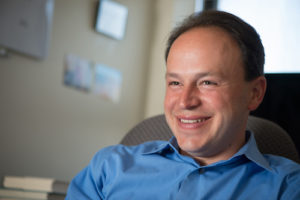
MATTHEW GROSSMANN
Red State Blues: How the Conservative Revolution Stalled in the States
MONDAY, NOVEMBER 11, 2019 | MMC Athenaeum | Dinner program
Over the last quarter-century, a nationalized and increasingly conservative Republican Party made unprecedented gains at the state level, winning control of twenty-four new state governments. Liberals and conservatives alike anticipated far-reaching consequences, but what has the Republican revolution in the states achieved? Contrary to liberals’ fears, conservative state governments have largely failed to enact policies that advance conservative goals or reverse prior liberal gains. Tracking policies and socioeconomic outcomes across all 50 states, interviewing state insiders, and considering the full issue agenda highlight the stark limits of the conservative ascendancy. Although Republicans have been effective at staying in power, they have not substantially altered the nature or reach of government. Where they have had policy victories, the consequences on the ground have been surprisingly limited.
Matt Grossmann is director of the Institute for Public Policy and Social Research and Associate Professor of Political Science at Michigan State University. He is also a Senior Fellow at the Niskanen Center and Contributor at FiveThirtyEight. He is the author of Red State Blues (2019), Asymmetric Politics (with David A. Hopkins, 2016), Artists of the Possible (2014), and The Not-So-Special Interests (2012). He has published research in eighteen scholarly journals and political analysis in The New York Times, The Washington Post, and Politico. He hosts The Science of Politics podcast.
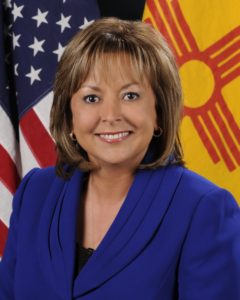 SUSANA MARTINEZ, Former governor of New Mexico
SUSANA MARTINEZ, Former governor of New Mexico
Governing Across the Aisle
WEDNESDAY, OCTOBER 9, 2019 | MMC Athenaeum | Dinner program
During her time in office, Susana Martinez’s legislative chambers were controlled by the other party, except for a two-year period of one chamber. Every bill she has ever signed into law has been bipartisan. She focused on the priorities that made her state a better place to live, work, and raise a family – like growing the economy, strengthening the schools, and prioritizing public safety. Working in a bipartisan manner is the key to enacting good policy.
In 2010, Susana Martinez was elected governor of the State of New Mexico. She became New Mexico’s first female governor and the first Hispanic female governor in the history of the United States. Prior to being elected governor, Martinez was a prosecutor for 25 years along the nation’s southern border and served as Doña Ana County’s elected district attorney for over half that time. As governor, she prioritized keeping New Mexico’s communities safe, ensuring all students receive a high-quality education, and diversifying and growing the state’s economy.
Governor Martinez’s two terms were marked by many successes including eliminating a $450 million inherited budget deficit and leaving the state with a $2 billion surplus; job growth at a 12-year high; improving the state’s high school graduation rate by 10 percentage points – to an all-time high of 74 percent; and implementing a number of public safety initiatives.
Governor Martinez won re-election to her second term in 2014 by the largest margin of any Republican gubernatorial candidate in modern history, earning substantial support from Democratic and Independent voters in rural and urban areas alike. She served alongside a Democratically-controlled Legislature throughout her time in office, with the exception of a two-year period of Republican control of one chamber. She has been named as Time Magazine’s Top 100 Most Influential People in the World (2013) and served as a Chairman and long-time executive committee member of the Republican Governors Association (RGA).
Governor Martinez was born and raised in the Rio Grande Valley and has made Las Cruces, New Mexico her home since the 1980s. She earned her bachelor’s degree from the University of Texas at El Paso and later earned her law degree from the University of Oklahoma School of Law, where she was recently inducted into the school’s Hall of Fame.
Governor Martinez currently serves as a Board Member for the Foundation for Excellence in Education (ExcelinEd) and as an Advisory Board Member for the Hunt-Kean Leadership Fellows program of the Hunt Institute. A proud Blue Star Mother, Governor Martinez is also an Advisory Board Member for the Global War on Terrorism Memorial Foundation.
A Legacy of Improving the New Mexico Economy
(an exclusive talk with the Rose Institute and students of Policy Lab and Public Policy Process | October 7, 2019 | MMC Athenaeum | Parents Dining)
When Susana Martinez took office in 2011, she faced the largest structural budget deficit in state history at more than $450 million of a $5.9 billion budget. Through a relentless commitment to prioritize spending, diversify the economy, and forcing the government to live within its means like our families and businesses do every day – and resisting each and every call to raise taxes – She left the state of New Mexico with eight consecutive balanced budgets, strong cash reserves, and a $2.2 billion surplus.
Spring 2019
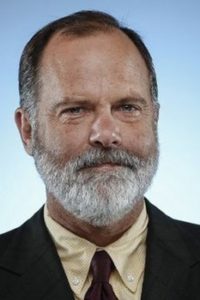 JIM NEWTON
JIM NEWTON
California Today: Role Model, Warning, or Both?
THURSDAY, APRIL 11, 2019 | MMC Athenaeum | Board of Governors lunch program
Mr. Jim Newton is a veteran journalist, author, and teacher. In 25 years at the Los Angeles Times, Newton worked as a reporter, editor, bureau chief, columnist, and from 2007 through 2010, editor of the editorial pages. He is the recipient of numerous national and local awards in journalism and participated in two staff efforts, the coverage of the 1992 riots and the 1994 Northridge Earthquake, that were awarded the Pulitzer Prize.
Before coming to The Times, he was a reporter at the Atlanta Journal-Constitution, and he began his career as the 1985-86 clerk to New York Times columnist James Reston. He is a graduate of Dartmouth College.
He came to UCLA full-time in early 2015 to teach in Communications Studies and Public Policy and to found Blueprint, a new UCLA magazine (bluepint.ucla.edu) addressing the policy challenges facing California and Los Angeles in particular. He serves as the magazine’s editor-in-chief.
Newton also is a respected author of three important, best-selling, and critically-acclaimed works of history: Justice for All: Earl Warren and the Nation He Made (Riverhead, 2006); Eisenhower: The White House Years (Doubleday, 2011); and Worthy Fights: A Memoir of Leadership in War and Peace (Penguin Press, 2014), a collaboration with former CIA Director and Secretary of Defense Leon Panetta. He is at work on a fourth book, tentatively entitled Jerry Brown and the Creation of Modern California, a history of the state since 1960 as well as a biography of its longest-serving governor. It is scheduled for publication in 2019 by Little, Brown.
Mr. Newton’s talk was presented to the Rose Institute’s Board of Governors, students, and staff for the board’s spring 2019 meeting.
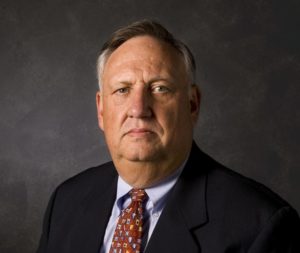
DAN WALTERS
Jerry Brown Redux
WEDNESDAY, FEBRUARY 20, 2019 | MMC Athenaeum | Lunch program
Jerry Brown was a political presence in California for more than a half-century, including two eight-year stints as governor and encompassing a time of great social and economic evolution. What is his legacy?”
Dan Walters has been a journalist for nearly 60 years, spending all but a few of those years working for California newspapers. At one point in his career, at age 22, he was the nation’s youngest daily newspaper editor. He joined The Sacramento Union’s Capitol bureau in 1975, just as Jerry Brown began his governorship, and later became the Union’s Capitol bureau chief. In 1981. Mr. Walters began writing the state’s only daily newspaper column devoted to California politics, economics, and social events. In 1984, he and the column moved to The Sacramento Bee, and in 2017, Mr. Walters and his column shifted to CALmatters.org. He has written more than 9,000 articles and his column appears in dozens of California newspapers.
Mr. Walters has written about California and its politics for a number of publications, including The Wall Street Journal, and in 1986, his book, The New California: Facing the 21st Century, was published in its first edition. The book later underwent revisions and became a widely-used college textbook about socioeconomic and political trends in the state.
He is the founding editor of the California Political Almanac and the co-author of The Third House: Lobbyists, Money, and Power in Sacramento. Mr. Walters frequently appears on CNN, Fox, and other networks, commenting about political developments in California.
Fall 2018
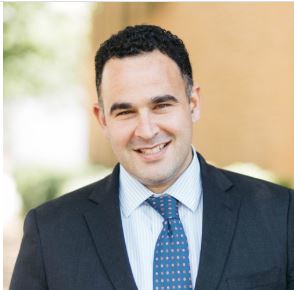 KEVIN A. SABET
KEVIN A. SABET
Marijuana Policy, Marijuana Facts and Myths
THURSDAY, NOVEMBER 15, 2018 | Lunch program
Harnessing more than two decades of experience in policy, Dr. Sabet combines humor with science, wit with clarity, and pragmatism with inspiration in this lively presentation. This plenary talk will discuss the perils of Big Pot — the big tobacco of our time, as Dr. Kevin Sabet will argue. Dr. Sabet will go through the latest developments over the battle to legalize marijuana and will review the latest science about the drug. Dr. Sabet’s presentation is based on his book “Reefer Sanity: Seven Great Myths About Marijuana.” In his presentation, he will provide an overview of the current drug policy trends in the United States, and debunk some of the most cited myths about marijuana use, for instance: marijuana is harmless and non-addictive, and legalization will solve the government’s budgetary problems.
Dr. Sabet makes the claim that our greatest concern should be the inevitable rise of a second Big Tobacco industry, this time marketing marijuana to our children and youth. He will refer to the already arising problems in Colorado and Washington state as examples.
His presentation concludes with an overview of our policy options, describing a smarter, science-based approach to marijuana policy that neither legalizes marijuana nor demonizes its users. You will hear more about marijuana, and more about marijuana policy, the health effects of the drug, and the current political landscape in this presentation than you likely ever have.
Described by NBC as the “prodigy” of drug politics and policy, Kevin A. Sabet, Ph.D., is an author, consultant, former advisor to three U.S. presidential administrations, assistant professor, and serves as the President and CEO of SAM, which he founded with former Congressman Patrick Kennedy in 2013. He has studied, researched, written about, and implemented drug policy for almost 20 years. He has worked in the Clinton (2000), Bush (2002-2003) Administrations, and in 2011 he stepped down after serving more than two years as the senior advisor to President Obama’s drug control director, having been the only drug policy staffer to have ever served as a political appointee in a Democrat and Republican administration. He is the author of the book Reefer Sanity: Seven Great Myths About Marijuana, published by Beaufort.
Dr. Sabet’s talk is the third in a series hosted by the Rose Institute on the topic of public policy implications of marijuana legalization.
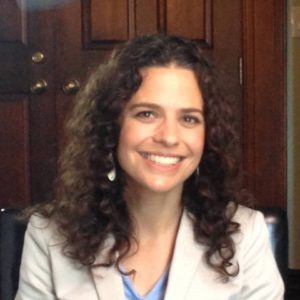 KAREN O’KEEFE
KAREN O’KEEFE
Marijuana Legalization: Bringing a Lucrative Market Out of the Shadows
FRIDAY, NOVEMBER 2, 2018 | Lunch program
Since 2012, nine states, including California, have made marijuana legal for adults who are 21 or older. Karen O’Keefe, who directs state lobbying efforts for the Marijuana Policy Project, will examine how states are legalizing, taxing, and regulating the multi-billion dollar cannabis market and how legalization and regulation promote customer, worker, and environmental safety. She will also discuss challenges that remain, including local bans, federal marijuana prohibition, and continued demand for illegally grown marijuana from states that still prohibit it.
As the director of state policies at the Marijuana Policy Project, Karen O’Keefe manages grassroots and direct lobbying efforts in state legislatures for the largest nonprofit that is focused solely on marijuana policy reform. In her 15-year career at MPP, Karen and her team have played a leading role in more than a dozen successful advocacy campaigns, including the first legalization law to pass a state legislature. Karen earned her J.D. from Loyola School of Law, New Orleans, and lives in West Hollywood, California.
Ms. O’Keefe’s talk is the second in a series hosted by the Rose Institute on the topic of the public policy implications of marijuana legalization.
 BOB STERN, KEN MILLER
BOB STERN, KEN MILLER
California’s Choices: 2018 Ballot Measures
TUESDAY, OCTOBER 30, 2018 | Dinner program
California has the nation’s most extensive system of direct democracy, as citizens regularly exercise the power to determine important policy issues by direct popular vote. In this election, Californians will vote on 11 propositions. The topics cover a broad range of subjects including various bond measures, repealing certain limits on rent control, an expansion of Prop 13, a repeal of the recently enacted gas tax, potential changes to seasonal daylight savings time, and further regulation of farm animal confinement. Bob Stern, one of the state’s leading political commentators, and Professor Ken Miller will provide expert analysis of these consequential choices. They will also present the Video Voter series of informational videos produced by Rose Institute students.
Bob Stern is the co-founder and former president of the Center for Governmental Studies, a California think tank focused on political reform. Stern has been called “the godfather of modern political reform in California.” He began drafting and analyzing political reform laws as a staff attorney for the California Legislature’s Assembly Elections Committee; he then served as the Elections Counsel to the California Secretary of State’s office. He has drafted numerous state initiatives and was a principal drafter of the City of Los Angeles’ Ethics and Public Campaign Financing laws in 1990. Stern is a graduate of Pomona College and Stanford Law.
Ken Miller is a member of the Government Department at CMC and is the Associate Director of the Rose Institute. His research focuses on state government institutions, with an emphasis on direct democracy (initiative, referendum, and recall) and the interaction between law and politics. Dr. Miller is a graduate of Pomona College, Harvard Law School, and U.C. Berkeley.
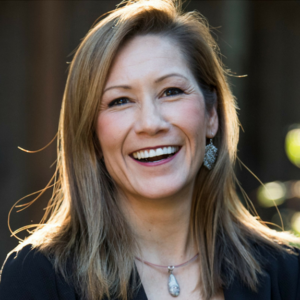 AMANDA RENTERIA
AMANDA RENTERIA
What the Changing World of Politics Means for Our Collective Future
TUESDAY, OCTOBER 9, 2018 | Lunch program
The rise in younger, more diverse voices is transforming all aspects of politics. Amanda Renteria, a 20-year veteran in public service with extensive experience as a Congressional political candidate, U.S. Senator’s chief of staff, national political director to a presidential candidate, and attorney general’s COO, will discuss how today’s electorate is at a pivotal moment that will shape the world for generations.
Amanda Renteria has had a unique and diverse career starting out in the financial industry, moving to education as a teacher in her small hometown community, and finally spending the majority of her career in public service. She has served as the chief of operations at the California Department of Justice, national political director for Secretary Clinton’s presidential run, and as a chief of staff in the United States Senate. She was named one of the most influential staffers by Roll Call and received a number of awards as the first Latina chief of staff in the history of the U.S. Senate. In addition to her policy work, she has also run for Congressional office in 2014 and governor of California in 2018 believing that empowering others is at the heart of public service.
Ms. Renteria’s Athenaeum presentation is co-sponsored by the CARE Center and the Rose Institute of State and Local Government, both at CMC.
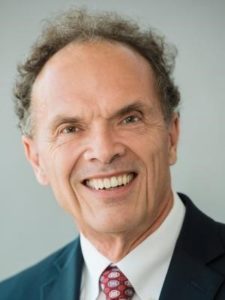 JOHN J. PITNEY, JR.
JOHN J. PITNEY, JR.
Half Past Trump
TUESDAY, OCTOBER 30, 2018 | Lunch program
Professor Pitney will give an overview of the 2018 congressional and state elections. He will consider the prospects for a shift in party balance in Congress, and the possible impact on public policy in 2018 and beyond.
John J. Pitney, Jr. is Roy P. Crocker Professor of American History and Politics at Claremont McKenna College where he teaches courses on Congress, interest groups, political parties, and mass media. A leading expert on the structure and practice of American politics, Pitney is a widely published author or co-author of six books on American politics, including The Art of Political Warfare (2001) and The Politics of Autism: Navigating The Contested Spectrum (2015). He is currently writing a book on the 1988 presidential campaign. In addition to his books, Pitney has published numerous scholarly articles and short essays and is a regular contributor to newspapers and magazines. He is routinely featured on NPR and other television and radio programs.
Pitney has not only shaped the study of government at Claremont McKenna College for nearly 30 years, he has also helped shape government itself through his many roles, including as the acting director for the Research Department of the Republican National Committee (1990-1991) and as the Senior Domestic Policy Analyst for the US House Republican Research Committee, among other important appointments.
Pitney holds a B.A. in political science from Union College, where he was co-valedictorian, and a Ph.D. in political science from Yale, where he was a National Science Foundation Fellow. He received the CMC Presidential Award in 2013 and was named one of the 300 best professors in the United States by the Princeton Review in 2012.
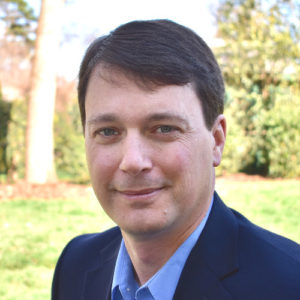 TONY MECIA
TONY MECIA
Legalizing Marijuana: Lessons from Colorado
TUESDAY, SEPTEMBER 25, 2018 | Lunch program
Colorado was the first state to legalize recreational marijuana. Now, nearly five years later, other states are following its lead — and new data are coming in on what the effect has been in Colorado. The effects of legalization are mixed: While it has created jobs, spurred tourism, and raised millions in new tax revenue, legal weed has also attracted vagrants and cartels from out-of-state, contributed to spikes in crime, and caused doctors to worry about the effect on public health.
Tony Mecia is a senior writer at The Weekly Standard. Previously, he spent more than a decade as a business reporter and editor at the Charlotte Observer in North Carolina. He is a graduate of Duke University and has a master’s in journalism from the University of North Carolina at Chapel Hill. A native of the San Francisco Bay Area, he lives in Charlotte, North Carolina, with his wife and three children.
Mr. Mecia will be the first speaker in a series on the public policy implications of marijuana legalization sponsored by the Rose Institute of State and Local Government.
Spring 2018
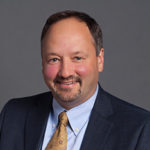 DAVID LESHER
DAVID LESHER
Media Trends: The Profitless and the Non-Profits
THURSDAY, APRIL 26, 2018 | Lunch program
Our liberty depends on the freedom of the press, and that cannot be limited without being lost. So said Thomas Jefferson. So if journalism is essential to democracy and quality journalism is no longer profitable, how do we preserve a healthy democracy? Mr. Lesher will discuss the rapidly changing media and the emerging case for non-profits like CALmatters. Newspaper ad revenue today is a quarter its value in 2000. Meanwhile, non-profits have grown six-fold in a decade, filling gaps in essential coverage. California is a prime example.
David Lesher is co-Founder, Editor, and CEO of CALmatters, a non-profit media organization launched in 2015 to cover state policy and politics. Today, CALmatters has the largest news staff in Sacramento and its work is shared with more than 100 media, including all of the state’s major newspapers and radio stations. Lesher has worked with top state leaders and major California issues for more than 35 years as a journalist and policy analyst. He was in the newspaper for more than 25 years, largely at the Los Angeles Times where he was a political writer, state Capitol reporter and assistant national editor for the White House campaign. He also served as editor of California Journal magazine, California director for the DC-based New America Foundation and Government Affairs Director for the Public Policy Institute of California.
 SCOTT MAUVAIS ’90
SCOTT MAUVAIS ’90
Tech Innovations in Our Cities: Can Civic Institutions Keep Up?
Wednesday, April 11 2018 | Lunch program
We are on the cusp of solving society’s biggest challenges such as disease, ignorance, and poverty and dramatically improving the well-being of citizens. Yet, it’s possible to imagine a darker future in which automation eliminates millions of jobs, inequality becomes an unbridgeable chasm, and our core democratic institutions are permanently undermined. Scott will draw on his experience running Microsoft’s Cities program to discuss the role of tech in society and what we can do today to accelerate the positive aspects of the coming change and mitigate the downside.
Scott Mauvais is the Director of Microsoft Cities where he works with local leaders to infuse technology into existing real-world systems to make cities better places to live, learn, work, and innovate. He has been at Microsoft 18 years. Most recently, he was the Director of the Microsoft Technology Center, an innovation lab where Microsoft’s top architects work hand-in-hand with Fortune 500 companies to envision, architect, and prove out solutions based on Microsoft’s newest technologies. Prior to that, Mauvais worked for Microsoft Consulting Services where he ran early stage projects for customers in Microsoft’s Early Adopter Program. He has written extensively for Microsoft Press and Ziff-Davis.
Mauvais serves on the national boards of Upwardly Global, City Innovate Foundation, and the Urban Age Institute and co-owns of The WELL, the ground breaking online community founded in 1985. When not working, Mauvais enjoys skiing in the winter, backpacking in the summer, and seeing—and photographing—as much live music as possible year-round.
He graduated from Claremont McKenna College in 1990 with Bachelor of Arts Degrees in Economics and Government. He lives in San Francisco.
Mr. Mauvais’ talk is co-sponsored by the Rose Institute and the Lowe Institute.
 NADINE STROSSEN
NADINE STROSSEN
HATE: Why We Should Resist it with Free Speech, not Censorship
THURSDAY, APRIL 5, 2018 | Evening program
We live in an era in which offensive speech is on the rise. Given its potential for harm, should this speech be banned? Nadine Strossen dispels the many misunderstandings that have clouded the perpetual debates about “hate speech vs. free speech.” She argues that an expansive approach to the First Amendment is most effective at promoting democracy, equality, and societal harmony. Ms. Strossen argues that anti-hate speech laws are not effective in reducing the feared harms, and worse yet, are likely counterproductive by giving enforcement officials the power to suppress vital expression and target minority viewpoints. The solution instead is to promote equality and societal harmony through vibrant “counterspeech.”
Nadine Strossen is the John Marshall Harlan II Professor of Law at New York Law School. She has written, taught, and advocated extensively in the areas of constitutional law and civil liberties, including through frequent media interviews. From 1991 through 2008, she served as President of the American Civil Liberties Union, the first woman to head the nation’s largest and oldest civil liberties organization. Professor Strossen is currently a member of the ACLU’s National Advisory Council, as well as the Advisory Boards of EPIC (Electronic Privacy Information Center), FIRE (Foundation for Individual Rights in Education), and Heterodox Academy. When she stepped down as ACLU president in 2008, three Supreme Court Justices (Ruth Bader Ginsberg, Antonin Scalia, and David Souter) participated in her farewell and tribute luncheon.
Ms. Strossen is also a prolific author. Her latest book, HATE: Why We Should Resist It With Free Speech, Not Censorship, will be published by Oxford University Press in 2018. Her first two books are Defending Pornography: Free Speech, Sex and the Fight for Women’s Rights and Speaking of Race, Speaking of Sex: Hate Speech, Civil Rights and Civil Liberties. In addition, Ms. Strossen has written dozens of articles and book chapters.
Ms. Strossen is a graduate of Harvard College and Harvard Law School.
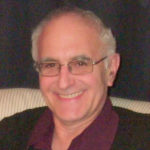 MICHAEL P. ZUCKERT
MICHAEL P. ZUCKERT
Is the Problem of Freedom of Speech Soluble?
TUESDAY, MARCH 20, 2018 | Evening Program
Freedom of Speech, especially on college and university campuses, has once again become a subject of intense discussion and debate. It is a particularly difficult debate because over the time in which Free Speech has been a topic of political and philosophical concern the accepted doctrines of speech have undergone many transformations with the result that several varieties of speech doctrine coexist, each claiming allegiance to a conception of free speech often in conflict with other such conceptions. I will attempt to sort out our debate by looking at the development of the different speech doctrines and by considering the political and philosophic reasons and implications associated with the different versions of free speech doctrine.
Michael Zuckert is the Nancy R. Dreux Professor of Political Science at the University of Notre Dame. Before that, he was Kenan Professor of Political Science at Carleton College. His main scholarly work has been in the areas of early modern political philosophy, and constitutional law and history. He has written widely in these areas. His books include Natural Rights and the New Republicanism, The Natural Rights Republic, Launching Liberalism, and Leo Strauss and the Problem of Political Philosophy. He is now completing a book titled A Nation So Conceived; Abraham Lincoln and the Problem of Democratic Sovereignty.

JOHN A. PÉREZ
The California Comeback
TUESDAY, FEBRUARY 13, 2018 | Lunch program
John A. Pérez, former speaker of the California Assembly, will examine what California’s response to the Great Recession portends for higher education and California’s economic expansion.
John A. Pérez is the current Vice Chair of the University of California Board of Regents. He was elected to the California Assembly in November 2008, representing downtown Los Angeles and communities of East Los Angeles. In January 2010, his colleagues elected him California’s 68th Assembly Speaker. He was subsequently reelected in 2010 and 2012, making him one of the longest serving Speakers in the era of term limits. Prior to his service in the Assembly, Pérez was a lifetime member of the labor movement.
JOEL KOTKIN
California Squashes its Young: How the Golden State’s Economic Policies are Driving Out a New Generation
WEDNESDAY, FEBRUARY 7, 2018 | Evening program
Many progressives see California as a model of enlightenment and the Golden State’s post-2010 recovery has won plaudits in the progressive press. Yet if one looks at the effects of the state’s policies on key Democratic constituencies— millennials, minorities, and the poor—the picture is dismal. A recent United Way study found that close to one-third of state residents can barely pay their bills, largely due to housing costs. When adjusted for these costs, California leads all states—even historically poor Mississippi—in the percentage of its people living in poverty.
Joel Kotkin is the Presidential Fellow in Urban Futures at Chapman University, Executive Director of the Center for Opportunity Urbanism (opportunityurbanism.org), and Senior Advisor to the Kem C. Gardner Policy Institute. He is Executive Editor of the widely read website www.newgeograpy.com and writes the weekly “New Geographer” column for Forbes.com. He is a regular contributor to the Daily Beast and Real Clear Politics. The author of seven books, Mr. Kotkin has been described by the New York Times as “America’s uber-geographer.”
Fall 2017
 MICHAEL NELSON, JOHN J. PITNEY, ANDREW E. BUSCH
MICHAEL NELSON, JOHN J. PITNEY, ANDREW E. BUSCH
The 2016 Election One Year Later
TUESDAY, NOVEMBER 7, 2017 | Evening program
Michael Nelson, editor of The Elections of 2016 (Sage/CQ), and CMC’s own Andrew Busch and Jack Pitney, authors of Defying the Odds: The 2016 Elections and American Politics (Rowman & Littlefield), will join together in a panel discussion to examine the 2016 elections one year later. What have we learned about the reasons for the surprising victory of Donald Trump in November 2016? What have the results of the election been so far? And, after one year, where are American politics headed?
Michael Nelson is the Fulmer Professor of Political Science at Rhodes College, a Senior Fellow at the University of Virginia’s Miller Center, and Senior Contributing Editor and Book Editor of the Cook Political Report. John J. Pitney, Jr. is the Roy P. Crocker Professor of American Politics at Claremont McKenna College. Andrew E. Busch is the Crown Professor of Government and George R. Roberts Fellow at Claremont McKenna College.

DEBORAH GONZALEZ ’85
Policy Research and Political Challenges
MONDAY, NOVEMBER 6, 2017 | Lunchprogram
Think tanks play an important role in the U.S. policy process, attempting to improve lawmaking and governance by testing political assumptions through empirical research, and offering policy alternatives based on evidence. However, a think tank’s ability to influence policymaking rarely hinges on the strength of their claims or the quality of their findings. An ever-changing political climate, driven by public opinion, legislative politics, interest group lobbying, and a host of other factors make it challenging for think tanks to understand what issues to focus on and how to effectively influence the policymaking process.
Deborah Gonzalez ’85 spent a career working in the California legislature, serving as Policy Director to five different Republican leaders, and now directs government affairs for the Public Policy Institute of California (PPIC). Ms. Gonzalez has a unique perspective that combines an intimate knowledge of the process in Sacramento with the policy research environment of PPIC. She will discuss the divide between policy research and the policy process in California government, and the ways in which the two can work better together to improve lawmaking.
Ms. Gonzalez’s talk was co-sponsored by the Dreier Roundtable and the Rose Institute for State and Local Government.
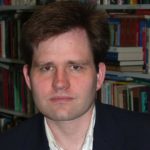 KEITH WHITTINGTON
KEITH WHITTINGTON
Why Free Speech Matters on Campus
THURSDAY, OCTOBER 26, 2017 | Lunchprogram
Keith E. Whittington, professor of politics at Princeton University, will argue that robust protection of free speech and civil discourse is essential for universities to fulfill their distinct and important mission to assemble and nurture an open and diverse community of scholars, teachers and students dedicated to the production and dissemination of knowledge. Understanding the relationship between the critical functions of the university and the principles of free speech can help provide guidance in resolving the difficult challenges that confront modern universities.
Keith E. Whittington is the William Nelson Cromwell Professor of Politics at Princeton University. He is the author of “Political Foundations of Judicial Supremacy: The Presidency, the Supreme Court, and Constitutional Leadership in U.S. History,” “Constitutional Interpretation: Textual Meaning, Original Intent, and Judicial Review,” and “Constitutional Construction: Divided Powers and Constitutional Meaning,” among others. He is also a co-editor of “Congress and the Constitution” and “The Oxford Handbook of Law and Politics.” He has published widely on American constitutional theory and development, judicial politics, the presidency, and federalism.
Whittington is currently working on a political history of the judicial review of federal statutes and preparing, with Howard Gillman and Mark Graber, a book of cases and materials on American constitutionalism. His work has won the C. Herman Pritchett Award for best book in law and courts and the J. David Greenstone Award for best book in politics and history. He has been a John M. Olin Foundation Faculty Fellow, an American Council of Learned Societies Junior Faculty Fellow, a visiting scholar at the Social Philosophy and Policy Center, and a visiting professor at the University of Texas School of Law. He is a member of the American Academy of the Arts and Sciences. He received a Ph.D. in political science from Yale University.
Professor Whittington’s talk was co-sponsored by the Rose Institute of State and Local Government and the Salvatori Center for Individual Freedom in the Modern World.
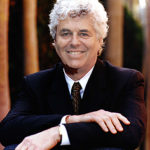 TRACY WESTEN
TRACY WESTEN
New Media Models for Civic Engagement: From Marconi to Snapchat
TUESDAY, SEPTEMBER 19, 2017 | Evening program
From Marconi and AM radio to email, Facebook Twitter and Snapchat, each new medium has changed the nature of politics and civic engagement. Yet in many ways, our political knowledge and civic participation have decreased. Why has this happened, and how can we revitalize our democracy through new media models of civic engagement?
Professor Westen founded and directed the Center for Governmental Studies (CGS) and taught communications law and policy at the USC Annenberg School for Communications and UCLA Law School for over 30 years. He created four Blue Ribbon Commissions; built award-winning model websites to enhance civic education including The Democracy Network, Video Voter, California Channel, Digital Democracy and PolicyArchive.org; litigated test cases on media in the federal courts; and authored or edited over 75 books and reports on media, democracy and judicial reforms. He was Deputy Director for Consumer Protection at the Federal Trade Commission and Legal Assistant to an FCC Commissioner. He received degrees with high honors from UC Berkeley Law School (J.D.), University of Oxford (M.A.) and Pomona College (B.A.).
Spring 2017
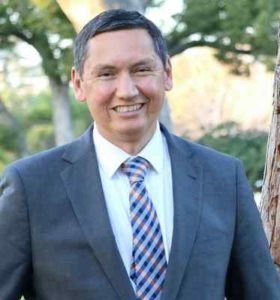 TIM SANDOVAL
TIM SANDOVAL
The New Vision for the City of Pomona
THURSDAY, APRIL 27, 2017 | Lunch program
Running on a campaign of creating a One Pomona vision and embracing servant leadership model, Tim Sandoval was elected mayor of Pomona and took office in December 2016.
Tim Sandoval and his family moved to Pomona when Tim was just nine years old. He attended Montvue Elementary, Emerson Middle School and Pomona High School, becoming its senior class speaker. He went on to higher education at Claremont McKenna College and University of California Riverside.
After completing his education, Sandoval returned to Pomona to help others in the community access college as well. He led Pomona Valley Community Center’s youth programs and then taught English at Charter Oak High School from 1999-2002.
In 2001, Sandoval became a founding member of Bright Prospect, a mentoring organization that has helped more than two thousand low-income youth become part of the first generation of their family to complete their college degrees. Sandoval served as the program director for Bright Prospect from 2002 through 2016.
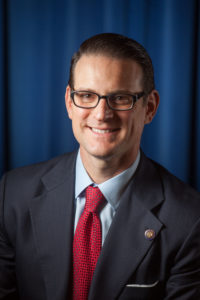 MIKE HESTRIN
MIKE HESTRIN
California’s Deincarceration Experiment
TUESDAY, APRIL 11, 2017 | Evening Program
Michael A. Hestrin was elected as Riverside County District Attorney in June 2014 and was sworn in as the District Attorney on Jan. 5, 2015.
Hestrin was born in the Coachella Valley and he graduated in 1993 from the University of Arizona in Tucson, Arizona with a bachelor’s degree in history. After college, he spent a year living in Mexico with relatives working as a reporter for a small newspaper based in Guadalajara. He then returned to the United States to begin his legal studies at Stanford University, graduating in 1997 with both a Juris Doctorate in Law and a master’s degree in Latin American studies.
Hestrin spent 18 years as a line prosecutor in the DA’s Office before being elected as District Attorney. During his years as a prosecutor, represented the people of Riverside County in some of the most difficult and challenging cases. He has completed more than 100 jury trials during his career. As Trial Team Leader for the District Attorney’s Sexual Assault and Child Abuse Unit, he prosecuted those who target and abuse children. For most of his last 10 years with the DA’s Office prior to becoming District Attorney, Hestrin was assigned to the Homicide Unit where he conducted more than 35 murder trials including seven successful death penalty cases.
Hestrin has been recognized for his achievements during his legal career. In 2003, 2005, and again in 2010, he was named Countywide Prosecutor of the Year for Riverside County. In 2008, Hestrin was chosen by the legal publication, The Daily Journal, as one of California’s “Top Twenty Lawyers Under Forty”. In 2009, he was honored as the Statewide Prosecutor of the Year by the California District Attorney Investigators Association. In 2010, the California District Attorneys Association recognized him as California’s Outstanding Prosecutor of the Year.
In addition to prosecuting cases, Hestrin conducted trainings for prosecutors, paralegals, law enforcement officers, Riverside County Bar Association members, and social workers in ethics, trial advocacy, sex offender prosecution, homicide prosecution, and capital case litigation. He has also been an adjunct professor at Azusa Pacific University for the last 10 years teaching American Government, Introduction to Criminal Law and Procedure and Latin American History.
Hestrin currently lives in Murrieta with his wife and children.
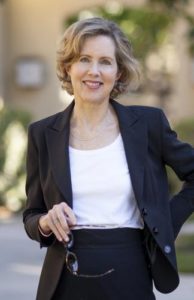 HEATHER MAC DONALD
HEATHER MAC DONALD
The War on Police
THURSDAY, APRIL 6, 207 | Evening program
The Black Lives Matter movement holds that the U.S. is experiencing an epidemic of racially-driven police shootings, and that policing is shot through with systemic bias. Those claims have been embraced at the highest reaches of government and amplified by the media. But are they true? Heather Mac Donald will argue that the central Black Lives Matter narrative is not just false but dangerous. It has caused officers to back off on proactive policing in high crime areas, leading to the largest spike in homicides in nearly 50 years. The victims have overwhelmingly been black.
Mac Donald will explore the data on policing, crime, and race and argue that policing today is driven by crime, not race. In fact, there is no government agency more dedicated to the proposition that black lives matter than the police.
Heather Mac Donald is the Thomas W. Smith Fellow at the Manhattan Institute whose expertise include policing, immigration, welfare, education, homeland security, and philanthropy.
She is a contributing editor of City Journal. She is a recipient of the 2005 Bradley Prize. Mac Donald’s work at City Journal has covered a range of topics, including higher education, immigration, policing, homelessness and homeless advocacy, criminal-justice reform, and race relations. Her writing has appeared in the Wall Street Journal, Washington Post, New York Times, Los Angeles Times, The New Republic, and The New Criterion. Mac Donald’s newest book, The War on Cops (2016), warns that raced-based attacks on the criminal-justice system, from the White House on down, are eroding the authority of law and putting lives at risk.
Ms. Mac Donald earned her B.A. from Yale University, M.A. from Cambridge University, and a J.D. from Stanford University Law School.
This talk was co-sponsored by the Salvatori Center for Individual Freedom in the Modern World, the Rose Institute of State and Local Government, and the Marian Miner Cook Athenaeum.
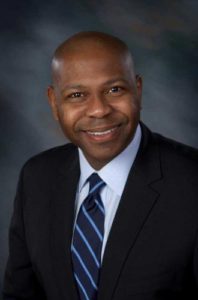
JASON L. RILEY
The State Against Blacks
WEDNESDAY, MARCH 1, 2017 | Evening program
Have well-intentioned government efforts – starting with the Great Society – helped the black underclass? Jason Riley assessed the track record of these programs and argued that, more often than not, these efforts have been counterproductive and widened racial disparities in income, education, employment, and other areas. Riley also discussed how blacks have fared in the Obama era.
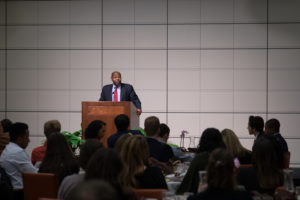 Jason Riley is a senior fellow at the Manhattan Institute, a columnist for the Wall Street Journal, and a commentator for Fox News. After joining the Journal in 1994, he was named a senior editorial writer in 2000 and a member of the editorial board in 2005. Riley writes opinion pieces on politics, economics, education, immigration, and race. A frequent public speaker, he is a longtime commentator for Fox News.
Jason Riley is a senior fellow at the Manhattan Institute, a columnist for the Wall Street Journal, and a commentator for Fox News. After joining the Journal in 1994, he was named a senior editorial writer in 2000 and a member of the editorial board in 2005. Riley writes opinion pieces on politics, economics, education, immigration, and race. A frequent public speaker, he is a longtime commentator for Fox News.
Riley is the author of Let Them In: The Case for Open Borders (2008), which argues for a more free-market-oriented U.S. immigration policy; and Please Stop Helping Us: How Liberals Make It Harder for Blacks to Succeed (2014), which discusses the track record of government efforts to help the black underclass. He has also worked for USA Today and the Buffalo News. Riley holds a B.A. in English from SUNY-Buffalo.
This talk was co-sponsored by the Salvatori Center for Individual Freedom, the Rose Institute of State and Local Government, and the Marian Miner Cook Athenaeum
Fall 2016
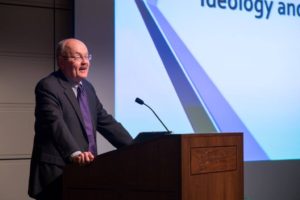 STEVEN E. SCHIER
STEVEN E. SCHIER
Polarization: The Rise of Ideology in U.S. Politics
WEDNESDAY, NOVEMBER 2, 2016
The 2016 presidential election features the two most unpopular major party nominees in the history of opinion polling. How did that happen?
Steve Schier is Dorothy H. and Edward C. Congdon Professor of Political Science at Carleton College in Northfield , Minnessota.
Professor Schier graduated in 1974 from Simpson with a double major in political science and history. He then enrolled in graduate school at the University of Wisconsin-Madison and received his M.A. in 1975 and Ph.D. in 1978. He taught at Wittenberg University in Springfield, Ohio, earning full professorship in 1993. Professor Schier is the recipient of a Fulbright Distinguished Lecturing Award in 2002.
Professor Schier has published thirteen books and has authored many scholarly articles and monographs. His edited book entitled A Post-Modern Presidency: Bill Clinton’s Legacy in American Politics was named by Choice magazine an “Outstanding Academic Book” of 2001. A more recent book entitled High Risk and Big Ambition: The Presidency of George W. Busch was listed as an “academic press bestseller” in 2004.
More recently, he coedited (with Janet Box-Steffensmeier of Ohio State) and authored a chapter in The American Elections of 2008 for Rowman and Littlefield publishers. His book, Panorama of a Presidency: How George W. Bush Acquired and Spent His Political Capital, was published by M.E. Sharpe in late 2008. This book also won a Choice magazine “Outstanding Academic Book” award in 2009. In 2009, the University of Pittsburgh Press published his edited volume, Ambition and Division: Legacies of the George W. Bush Presidency.
Forthcoming is an edited volume, Debating the Obama Presidency, “the first book to present both the arguments for and against Barack Obama’s presidency and its policies.” The book presents different perspectives on the subject from political scholars, including CMC’s Andrew Busch and Jack Pitney.
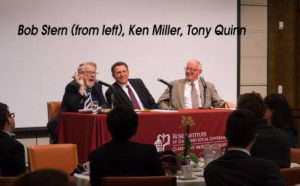 BOB STERN & TONY QUINN (panelists); KEN MILLER (moderator)
BOB STERN & TONY QUINN (panelists); KEN MILLER (moderator)
California’s Choices: 2016 Ballot Measures
WEDNESDAY, OCTOBER 26, 2016
California has the nation’s most extensive system of direct democracy, as citizens regularly exercise the power to determine important policy issues by direct popular vote. In this election, Californians will vote on an astounding 17 propositions. The topics cover a broad range of subjects, including among other things, the death penalty, legalizing marijuana, criminal sentencing, firearms and ammunition sales, bond funding, cigarette tax, income tax, and open government measures. Two of the state’s leading political commentators, Bob Stern and Tony Quinn, provided expert analysis of these consequential choices. Professor Ken Miller moderated the discussion and presented the Rose Institute’s Video Voter series of informational videos produced by the Rose Institute students.
Bob Stern is the co-founder and former president of the Center for Governmental Studies, a California think tank focused on political reform. Stern has been called “the godfather of modern political reform in California.” He began drafting and analyzing political reform laws as a staff attorney for the California Legislature’s Assembly Elections Committee; he then served as the Elections Counsel to the California Secretary of State’s office. He has drafted numerous state initiatives and was a principal drafter of the City of Los Angeles’ Ethics and Public Campaign Financing laws in 1990. He is a graduate of Pomona College and Stanford Law.
Tony Quinn is co-editor of the California Target Book, a non-partisan almanac of California politics. Quinn is an authority on California political trends and demographics. He served three years as an assistant to the California Attorney General, is a former director of the Office of Economic Research in the Department of Commerce, and for five years served as a member of the California Fair Political Practices Commission. Dr. Quinn has written extensively on California politics and elections. He holds degrees from Georgetown University, University of Texas, and Claremont Graduate University.
Ken Miller is a member of the Government Department at CMC and is the Associate Director of the Rose Institute. His research focuses on state government institutions, with emphasis on direct democracy (initiative, referendum, and recall) and the interaction between law and politics. Dr. Miller is a graduate of Pomona College, Harvard Law School, and U.C. Berkeley.
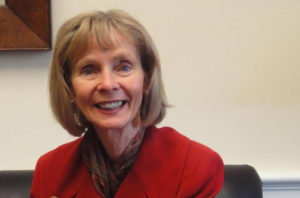 CONGRESSWOMAN LOIS CAPPS
CONGRESSWOMAN LOIS CAPPS
Reflections on a Career in Congress
WEDNESDAY, OCTOBER 5, 2016
A resident of Santa Barbara since 1964, Congresswoman Lois Capps represents California’s 24th District, which includes San Luis Obispo and Santa Barbara Counties, and a portion of Ventura County. She was sworn in as a member of Congress in 1998.
Rep. Capps has spearheaded and passed legislation on issues addressing national nursing shortage, violence against women, underage drinking, mental health services, research on pediatric rare diseases, provision of AEDs to local communities, diversification of clinical trials for effective treatments, CPR instructions in schools, hearing loss in newborns, Medicare coverage for patients suffering from Lou Gehrig’s disease, the expansion of TRICARE health coverage for military mothers, and rental car safety for consumers.
At the forefront of efforts to protect the environment and promote clean energy and green technology, she has led efforts to prevent new oil and gas drilling off our coast and on the public’s lands, strengthen oil pipeline safety and spill response, protect consumers from shouldering the financial burden of cleaning up water pollution in their water supplies, and conserve wildlife and rare species native to the Central Coast. She has also authored laws to establish a national system for ocean monitoring, expand conservation efforts for public lands, and strengthen labeling standards for organic foods.
Rep. Capps serves on the Committee on Energy and Commerce, and the Natural Resources Committee.
She is a member and has served as co-chair of numerous Congressional caucuses. She is the founder and co-chair of the House Nursing Caucus and was an original member and is honorary Vice-Chair, of the LGBT Equality Caucus.
Rep. Capps graduated from Pacific Lutheran University in Tacoma, Washington with a B.S. in Nursing, earned an M.A. in Religion from Yale University, and an M.A. in Education from U.C. Santa Barbara. She has received honorary doctorates from Pacific Lutheran University and Pacific Lutheran Theological Seminary.
Spring 2016
 CYNTHIA BRYANT
CYNTHIA BRYANT
The Future of the Republican Party in California
TUESDAY, MARCH 29, 2016
With Republicans now shut out of all statewide offices, in the minority in both houses of the legislature, and occupying only 14 of the state’s 53 House districts, California has become one of the nation’s most solidly blue states. Yet, it has not always been this way – California had a Republican governor only five years ago. Moreover, as California Democrats face a number of challenges, including divisions on some issues and emerging battles to replace older leaders in the state’s top elected offices, the political landscape may be primed to shift. How will the nation’s grassroots voter unrest affect California? Will it present a challenge to California’s blue state governance model? What does the future hold for California’s Republican Party?
Ms. Bryant is the Executive Director of the California Republican Party. She is the former Deputy Chief of Staff and Director of Planning and Research for Governor Schwarzenegger. She has also been the Vice President of the California Charter School Association and the Policy Director for the Senate Republican Caucus. Ms. Bryant is a graduate of Lewis and Clark College and the University of California Hastings College of Law.
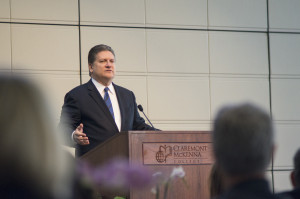 SENATOR ROBERT HERTZBERG
SENATOR ROBERT HERTZBERG
The Future of the Democratic Party in California
FRIDAY, FEBRUARY 26, 2016
How will the nation’s grassroots voter unrest affect California? Is the blue state governance model sustainable over the long term? What does the future hold for California’s Democratic Party?
With Democrats now filling all statewide offices, dominating both houses of the Legislature, and controlling both U.S. Senate seats and 39 of the state’s 53 House districts, California has become one of the nation’s most solidly blue states. Yet, as Robert Hertzberg will address, California Democrats face a number of challenges, including divisions on some issues and emerging battles to replace older leaders in the state’s top elected offices.
Hertzberg, a native of Los Angeles, was twice unanimously elected Speaker of the California State Assembly (2000‐2002) and is the first former Assembly Speaker in 86 years to be elected to the California State Senate, where he now serves nearly one million residents in the San Fernando Valley. Hertzberg continues to address the big challenges facing California and is a founding member of The Berggruen Institute’s Think Long Committee and serves on the board of directors at the Rose Institute of State and Local Government at Claremont McKenna College.
Hertzberg is a graduate of The University of Redlands (1976) and earned his law degree from the University of California, Hastings College of the Law (1979).
Senator Hertzberg’s talk is co-sponsored by the MMC Athenaeum and the Rose Institute of State and Local Government.
Before the luncheon talk, Rose research assistants Shivani Pandya’18 and Melissa Muller’18 interviewed Senator Hertzberg on podcast. To listen to the podcast, click here.
Fall 2015
CHRISTOPHER SKINNELL’99 and KEN MILLER
Taking Voter Equality Seriously: What Does “One-Person, One-Vote” Really Mean?
TUESDAY, NOVEMBER 17, 2015
The Supreme Court first formulated the “one person, one vote” rule in the 1960s, holding that the Equal Protection Clause of the Fourteenth Amendment includes a “one-person, one-vote” principle. This principle requires that when members of an elected body are chosen from separate districts, each district must be established on a basis that will insure that equal numbers of voters can vote for proportionally equal numbers of officials. The Court, however, has never resolved the issue of what is the appropriate population to use for redistricting, whether it is total population, voting age population, citizen voting-age population, citizen-eligible voting-age population, or some variant. Evenwel v. Abbott, a case now before the Supreme Court, focuses on this question.
Christopher Skinnell is a partner at Nielsen Merksamer practicing law and civil litigation relating to elections, state and local initiative and referenda, redistricting and voting rights, campaign finance, tribal gaming, and general constitutional and government law matters. He is a 1999 graduate of Claremont McKenna College, where he was a research associate at the Rose Institute, and the University of Chicago Law School.
Ken Miller (B.A. Pomona College, J.D. Harvard Law School, Ph.D. U.C. Berkeley) is a member of the Government Department at CMC and the associate director of the Rose Institute. Dr. Miller’s research focuses on state government institutions, with an emphasis on direct democracy (initiative, referendum, and recall) and the interaction between law and politics. His publications include Direct Democracy and the Courts (Cambridge University Press 2009) and a co-edited volume The New Political Geography of California(Berkeley Public Policy Press 2008). Dr. Miller has worked with Rose Institute students on many research projects, including the 24-state Miller-Rose Institute Initiative Database.
MAC TAYLOR
Taxing California
MONDAY, OCTOBER 26, 2015
Currently, there are numerous proposals in California to change the way people are taxed—from measures to extend the temporary taxes adopted in 2012 to major changes in the sales and property taxes. What is the state’s tax system and what are its major strengths and weaknesses? What are the issues that likely will be discussed—and voted on—in the coming year?
Mac Taylor was appointed to the position of Legislative Analyst in October 2008, as the fifth person to serve in that capacity since the office was founded in 1941. Mac began his career with the office in 1978 and has served in various capacities:
Program Analyst. Mac worked in the tax area, primarily income-related taxes, authoring reports on state and local spending limits, tax expenditure programs, and tax auditing issues.
- Section Head. Mac managed the General Government section in the office, covering a wide variety of assignments (retirement, employee compensation, labor issues, and housing).
- Deputy. Mac served for 17 years as deputy to the prior Analyst, Elizabeth Hill, overseeing the work of the K-12 Education, Higher Education, Local Government, State Administration, and Economics and Taxation sections.
As Legislative Analyst, Mac serves as the nonpartisan fiscal advisor to both houses of the California Legislature and oversees the preparation of annual fiscal and policy analyses of the state’s budget and programs. His office is also responsible for preparing impartial analyses of all initiative and constitutional measures qualifying for the state’s ballot.
Mac earned a bachelor’s degree, with highest honors, in political science from the University of California, Riverside, and a master’s degree in public affairs from Princeton University. He serves on the Statewide Leadership Council of the Public Policy Institute of California.
Spring 2015
MICHAEL GREVE
The Rise of Executive Federalism
MONDAY, APRIL 20, 2015
Modern federalism is the “cooperative” federalism of the New Deal. Politically, that regime has proven stupendously successful in doing what it was supposed to do: expands government at all levels. However, cooperative federalism’s stability rested on peculiar historical conditions: private and public affluence (that is, a general sense that we can afford an ever-expanding transfer state); tolerably homogenous states; and a functioning Congress. Those conditions have all ceased to operate, and they are not going to return any time soon. This predicament heralds the rise of an essentially extra-legal, executive federalism. Avoiding that fate would require a major overhaul of our most basic federalism arrangements.
Michael S. Greve is a member of the faculty at George Mason University School of Law, where he teaches constitutional law. He was previously a scholar at the American Enterprise Institute and, before that, was the founder and co-director of the Center for Individual Rights, a public interest law firm specializing in constitutional litigation. A prolific writer, Greve is the author of nine books and a multitude of articles appearing in scholarly publications, as well as numerous editorials, short articles, and book reviews. He has an M.A. and a Ph.D. from Cornell University.
PETER GENTALA, MARY O’GRADY P’15 (panelists); CHRISTOPHER SKINNELL ’99 (moderator)
Who Draws the Lines? Will the Supreme Court Strike Down Independent Redistricting Commissions?
MONDAY, APRIL 6, 2015
The Elections Clause of the United States Constitution provides that the “Times, Places and Manner of holding Elections for Senators and Representatives, shall be prescribed in each State by the Legislature thereof; but the Congress may at any time by Law make or alter such Regulations, except as to the Places of chusing Senators.” The voters of Arizona and California, however, have used the initiative process to take responsibility for drawing new congressional districts from the state legislatures and given it instead to independent redistricting commissions.
On March 2, 2015, the Supreme Court heard Arizona State Legislature v. Arizona Independent Redistricting Commission, a case challenging the use of independent redistricting commissions to draw congressional district boundaries. The Supreme Court’s resolution of that case may also govern the fate of California’s redistricting commission.
Peter Gentala is the General Counsel of the Arizona House of Representatives. He advises the Leadership of the House and serves as the Policy Advisor to the House Judiciary, Elections, and Rules Committees. Gentala is also a Faculty Associate at Arizona State University where he teaches criminal law and constitutional criminal procedure in the ASU School of Criminology and Criminal Justice. Gentala regularly represents the Speaker of the House in litigation and has participated in numerous lawsuits posing difficult state and federal constitutional questions in areas such as elections, education and healthcare funding, pension reform, the separation of powers, the Freedom of Speech, the Freedom of Religion, and redistricting. Before joining the staff of the House of Representatives, he worked at both the Center for Arizona Policy and the Alliance Defending Freedom, where he specialized in constitutional litigation. Gentala is a native of Tucson, Arizona. He has a J.D. and Master’s Degree in Public Policy from Regent University. In 2012, Gentala filed a lawsuit on behalf of the Arizona State Legislature challenging Arizona’s Proposition 106 as a violation of the Elections Clause of the U.S. Constitution. That suit is now pending on appeal in the Supreme Court of the United States. Oral argument was held on March 2, 2015.
Mary O’Grady P’15, counsel to the Arizona Independent Redistricting Commission, is a partner at Osborn Maledon in Phoenix, Arizona. Her practice focuses on appeals, civil litigation, and administrative law. O’Grady was the longest-serving Solicitor General for the State of Arizona and has a unique breadth of experience with public law issues. She has represented the State of Arizona and public officials in a variety of complex, high profile lawsuits and appeals in state and federal court. Her work has included ten cases that the U.S Supreme Court heard on the merits. O’Grady’s areas of expertise include election and campaign finance law, the Voting Rights Act, State constitutional law, government contracts, state legislation, open meeting and public records laws, redistricting and school finance. She has also worked extensively in the area of tribal-state relations, with a particular focus on tribal-state agreements. O’Grady is a graduate of Arizona State University and the University of California Santa Barbara.
Christopher Skinnell ’99 is a partner at Nielsen Merksamer Parrinello Gross & Leoni LLP, practicing law and civil litigation relating to elections, state and local initiative and referenda, redistricting and voting rights, campaign finance, tribal gaming, and general constitutional and government law matters. He is a 1999 graduate of Claremont McKenna College, where he was a research associate at the Rose Institute and the University of Chicago Law School. Skinnell has published articles and written extensively on voting rights and redistricting, California political demographics, campaign finance, and ethics compliance, and Native American issues, and has been a guest lecturer on redistricting issues at Claremont McKenna College.
MICHAEL BARONE
American Politics 2015: Looking Forward
THURSDAY, FEBRUARY 5, 2015
Michael Barone is Senior Political Analyst for the Washington Examiner and a Resident Fellow at the American Enterprise Institute, a Fox News Channel contributor, and co-author of The Almanac of American Politics.
Along with being the principal co-author, of The Almanac of American Politics, first published in 1971 with new editions appearing every two years, Barone is also the author or co-author of another six books. They are Our Country: The Shaping of America from Roosevelt to Reagan (1990), State Legislative Elections: Voting Patterns and Demographics (1997), The New Americans: How the Melting Pot Can Work Again (2001), Hard America, Soft America: Competition vs. Coddling and the Competition for the Nation’s Future (2004), Our First Revolution: The Remarkable British Upheaval That Inspired America’s Founding Fathers (2007), and Shaping Our Nation: How Surges of Migration Transformed America and its Politics (2013).
Barone has written for many publications, including U.S. News and World Report, The Economist, The New York Times, The Detroit News, Detroit Free Press, The Weekly Standard, The New Republic, National Review, The American Spectator, American Enterprise, The Times Literary Supplement, and The Daily Telegraph of London.
Barone grew up in Detroit and Birmingham, Michigan. He is a graduate of Harvard College and Yale Law School.
Fall 2014
NEIL RUIZ, GIOVANNI PERI, TIMOTHY KANE, w/ ERIC HELLAND, moderator
AND
MIKE MURPHY, PETER SKERRY, HEATHER WILLIAMS, w/ KEN MILLER, moderator
Dreier Roundtable: Immigration Policy for the 21st Century
FRIDAY, NOVEMBER 7, 2014
In collaboration with the Brookings Institution, Claremont McKenna College’s new Dreier Roundtable hosted its inaugural conference on campus on Friday, November 7. Titled “Immigration Policy for the 21st Century,” the Roundtable brought together renowned policy experts, academics, and journalists to discuss immigration reform in the changing political and economic landscape of the 21st century. Rep. David Dreier, former Chairman of the House Rules Committee and honorary Chairman of the Dreier Roundtable, described the forum as a part of CMC’s greater mission of fostering leadership in business, government, and the professions. Specifically, The Roundtable’s goal is to “address public policy questions and make recommendations to how we will resolve them.”
The conference began with a panel discussion examining the economics of immigration reform. Eric Helland—CMC Professor of Economics, Rose Institute Faculty Fellow, and Co-Director of the Dreier Roundtable—moderated the discussion. Neil Ruiz from the Brookings Institution, Giovanni Peri, Professor of Economics at University of California at Davis, and Timothy Kane from the Hoover Institution all served on the panel. All agreed that the United States must provide an easier path for high-skilled immigrants to work in the United States. This would not only improve the economy through innovation and global trade but also provide a supply of workers in the STEM fields, addressing a labor supply shortage in the U.S. tech and science industry. In terms of to low-skilled workers, Peri noted the importance of recognizing that immigrants provide demand for the economy, as well as supply. They help grow our economy in the long run rather than just taking jobs from native workers. There was a consensus at the end of the panel that the United States should implement simpler policies to lower work barriers between countries.
Ken Miller, CMC Associate Professor of Government, Associate Director of the Rose Institute, and Co-Director of the Dreier Roundtable, moderated the politics panel. It featured panelists Mike Murphy, a renowned Republican political consultant and political media expert, Peter Skerry, Professor of Political Science at Boston College (and former CMC faculty), and Heather Williams, Associate Professor of Politics at Pomona College. The panelists discussed questions of how President Obama should move forward on immigration policy, particularly in light of recent Republican gains in Congress in the 2014 midterm elections. Mike Murphy explained that it would be wise for the President to work with the Republican leaders of Congress rather than issuing an executive order, for an executive order would be “far less legitimate.” The panelists agreed that there must be a political consensus to legalize immigrants, with Murphy and Skerry speaking to the importance of first focusing on legal status rather than a path to citizenship.
The Dreier Roundtable concluded with a luncheon and panel discussion, moderated by William Antholis from the Brookings Institution, at the Athenaeum. Rep. Dreier, Jacob Goldstein from National Public Radio, Mike Murphy, and Peter Skerry discussed issues such as border security, E-Verify, and the positive and negative impacts of immigrants on American workers.
Moving forward, Rep. Dreier’s vision for the Dreier Roundtable is to continue conversations on issues beyond immigration, such as international trade, development of democratic institutions, and flow of information for commercial purposes. He believes the Dreier Roundtable initiative “demonstrates how Claremont McKenna is bringing the full spectrum of insightful opinions to our students’ world.”
GOVERNOR STEVE BULLOCK
Public Service, Integrity, and the problem of “Dark Money.”
TUESDAY, OCTOBER 28, 2014
On October 28, 2014, Montana Governor Steve Bullock paid a special visit to the Rose Institute to meet with students and discuss issues concerning Montana and state government. Topics ranged from tax policy to life on the campaign trail, to the state budget.
To read more about Governor Bullock’s visit to CMC, check out coverage of his talk at the Athenaeum on Public Service, Integrity, and the problem of “Dark Money.”
To watch the full talk, go here!
MIKE REYNOLDS, JENNIFER WALSH
MIKE HESTRIN, BRENT TUFELD
JOSEPH BESSETTE, moderator
Three Strikes Conference
FRIDAY, OCTOBER 24, 2014
On October 24 the Rose Institute of State and Local Government hosted a conference on California’s Three Strikes law. The conference reviewed the history and effects of the controversial law and also featured a debate on Proposition 47, which reclassifies certain crimes as misdemeanors and thus further narrows the scope of Three Strikes.
The event began with Mike Reynolds, author of California’s Three Strikes Law, and Professor Jennifer Walsh of Azusa Pacific University reviewing the history of the law and the events leading to its enactment. Mr. Reynolds started the session with a short video from the program 60 Minutes. It detailed how the murder of his daughter, Kimber, by someone who had been in and out of prison many times, led him to propose the harshest sentencing law in the state. According to Reynolds, “Thirty years ago, the most severe California penalty for first-degree murder was 16 years.” Three Strikes, which passed twenty years ago as both an emergency bill and an initiative, was designed to counter criminal recidivism. Mr. Reynolds referred to it as a success with specific mention to the second strike as being the most effective. Professor Walsh agreed and noted that “Three-Strikers are only 6 percent of inmates in California” and that by “1993 to 1995, almost half of the states passed a Three Strikes law.”
Continuing the discussion of criminal sentencing, Professor Joseph Bessette of Claremont McKenna College moderated a debate over the Proposition 47 initiative. Deputy Los Angeles County Public Defender Brent Tufeld ’82 spoke first in support of the initiative. Mike Hestrin, recently elected as the Riverside County District Attorney, spoke in opposition.
Tufeld led by asserting that “the reason for Proposition 47 is to lower penalties for charges seen as less serious in order to reduce jail overcrowding.” He went on to say that the cost of incarcerating “less serious” offenders is extremely high, and that “courts and [the] threat of jail sentences” do very little in helping drug offenders beat addiction. Tufeld ended by stating that Proposition 47 is not perfect, but the aims are on the right path. Mike Hestrin began by reinforcing the necessity of Three Strikes and warned against the “pendulum swing” that Proposition 47 is part of. Specifically, Hestrin disagreed with reducing the penalty for possession of drugs like heroin and methamphetamine and brought up the reduced charge of theft of a firearm as another flaw in the initiative.
Professor Bessette led a brief question and answer period to conclude the discussion.
BOB STERN and TONY QUINN
California’s Choices: 2014 Ballot Initiatives
WEDNESDAY, OCTOBER 22, 2014
Just in time for the 2014 election on November 4, the Rose Institute of State and Local Government hosted two experts on California politics to discuss the six measures on the ballot. Bob Stern is the co-founder of the Center of Governmental Studies, and Tony Quinn is the co-editor of the California Target Book. The event, titled California’s Choices: 2014 Ballot Initiatives, is part of a larger effort, including the recently completed Video Voter Series, which seeks to educate California voters about the six measures on this year’s ballot.
After viewing the Video Voter segment addressing each ballot measure, the panel, moderated by Associate Director of the Rose Institute Dr. Ken Miller, provided further insight on each measure. The measures range from Indian Tribal gaming rights to a $7 billion bond to finance water conservation and infrastructure. Both Stern and Quinn agreed that they expected the majority of the measures on the ballot to fail due to a stronger conservative streak in California ballot initiative history, as well as the increased power of negative ads and spending. About the initiative and referendum process, however, Stern and Quinn affirmed their support of the direct democracy, with Stern calling the initiative process a “fourth branch of state government.”
A prediction shared by the panel is the passage of both Proposition 1, the $7 billion bond measure for water resources, and Proposition 2, a constitutional amendment which strengthens the state’s rainy day fund. Both propositions passed by wide margins in the state legislature and, according to Stern, work to address timely issues that will make passage by the voters more likely.
Proposition 47, a citizen initiative which reclassifies certain non-violent felonies to misdemeanors, is likely to be the most closely contested measure on the ballot. According to Quinn, the legislature prefers that the voters deal with this subject rather than taking it up in the legislature because they are weary of appearing “soft on crime” or “anti-police.” Whichever way the ballot initiatives play out, the only certain thing is that the voters who get out and vote on November 4 will determine the outcome.
NANCY McCALLIN
Education and State Budgeting
MONDAY, OCTOBER 13, 2014
This Monday, October 13th, the Rose Institute welcomes Dr. Nancy McCallin to Claremont McKenna College. The talk is co-sponsored by the Kravis Leadership Institute. A leader in public education, Dr. McCallin serves as the President of the Colorado Community College System, which encompasses 13 state colleges and over 159,000 students. During her time as President, Dr. McCallin has implemented a redesign of the CCCS remedial education program, focusing on accurate course placement and individual attention for students.
She is a member of the board of the American Council on Education and the Colorado State Governor’s Education Leadership Council and was awarded the Phi Theta Kappa Distinguished State Community College Director Award in 2012. Dr. McCallin also has an extensive budget policy and economic analysis experience, having served as chief economist for the Legislative Council of the Colorado General Assembly, and later as the executive director of the Governor’s Office of State Planning and Budgeting, where she was responsible for Colorado’s $13 billion budget. Outside of budgetary or education issues, she has worked on issues such as energy, economic development, and Colorado Supreme Court nominations.
TOM LEPPERT
Four Lessons on Leadership
WEDNESDAY, SEPTEMBER 24, 2014
Tom Leppert, currently the CEO of Kaplan, Inc., and formerly the mayor of Dallas, spoke at the Marian Miner Cook Athenaeum on Wednesday, September 25, 2014. Leppert has a long history of leadership in both the private and public spheres. In the private sphere, he has led companies in several industries, notably construction. His nine years as the head of the Turner Corporation, the nation’s largest general construction company, is considered enormously successful. In the public sphere, he was mayor of Dallas from 2007 to 2011 and was a White House Fellows during the 1980s.
The focus of Leppert’s talk was on the four lessons on leadership he has learned throughout his career. The first of these was to never feel comfortable. He noted that during his career, he would frequently feel overwhelmed, but never intimidated. Only in this environment can people learn a new perspective – a key for leadership. The second was to be leery of straight lines. Following his tenure at McKinsey, a major accounting firm, he became a White House Fellow. Though diverging from a typical career path for his industry, he gained two important things: a new environment to explore and a much-broadened base of experience which made him more valuable when he returned to McKinsey. Again, the key was a different perspective. The third was to have a moral compass – know what is worth compromising on and what principles are sacrosanct. At various times in his career, Leppert faced moral trials that tested this sense. He always chose to do do the right thing, though it was often harder in the short-term than some alternatives. The last lesson was to get involved in the community. Besides being a good citizen, this also leads to an increased awareness of the way the rest of the world lives.
To Leppert, the key to leadership is in gaining new perspectives. Leaders do not listen to themselves, but to those around them. Only then will they gain enough information to make the correct decision. During the question and answer session, he joked that he lowered the average IQ of meetings with his staff. By surrounding himself with more intelligent people, he is better able to run any organization he is in, private or public. In closing, he urged the audience to find something they are passionate about and pursue it as much as possible.
Mr. Leppert’s talk was sponsored by the Kravis Leadership Institute, the Robert Day School, and the Rose Institute of State and Local Government.
JACK PITNEY
What’s at Stake in the Midterm Elections?
TUESDAY, SEPTEMBER 23, 2014
On Tuesday, September 23, Rose Institute Faculty Fellow Jack Pitney gave a talk at the Marian Miner Cook Athenaeum entitled “What’s at Stake in the Midterm Elections?” Pitney, who has been at Claremont McKenna College since 1986, has become one of the most quoted government professors in the entire nation. His quotes and articles can be found in numerous places, including the Washington Post, Politico, and The Christian Science Monitor.
Pitney began with an examination of the broad forces at work during the election. Historically, midterms have seen poor showings for the party holding the presidency. This year, it seems like that will be the case once again. Macroeconomic indicators frequently reported are improving, namely the unemployment rate, which is the lowest it has been during Obama’s presidency, and overall GDP. Nevertheless, many people do not see a healthy economy because labor force participation is the lowest it has been in decades, middle-class wealth has shrunk, and a large majority of the country believes the nation is headed on the wrong track. This creates strong headwinds for the Democratic Party in the fall.
While Pitney notes that the Republican Party is almost guaranteed to maintain control of the House, the Senate is a true toss-up. The Senate class up for reelection is from 2008, a banner year for Democrats, leaving many Democrats in vulnerable positions. Combined with broader forces, Pitney is leaning ever so slightly to the notion the GOP will win the Senate, but he would not be surprised if the Democrats kept the chamber. Looking forward, candidates from both parties are likely to be the recipients of ads, mostly negative, from both opposition candidates and outside sources.
Spring 2014

STEVEN MALANGA AND CHUCK REED
Tough Choices for California: What Public Pension Liability Means for Your Future
THURSDAY, APRIL 27, 2014
State and local government pensions across the country are collectively underfunded by at least $1 trillion and the heavy burden of public pension obligations is a primary factor in the recent wave of municipal bankruptcies. In California, unfunded public pension liabilities are a cloud looming over not only the state budget but also those of many local governments. Last year, Moody’s Investor Services placed 30 California cities on review for possible rating downgrades. As pension obligations consume an increasing portion of public budgets, a shrinking share is left for services. Join us for a discussion of the public pension crisis and what it means for the future.
Steven Malanga is City Journal’s senior editor, a Manhattan Institute senior fellow, and a former RealClearMarkets.com columnist. He is the author of the recently published Shakedown: The Continuing Conspiracy Against the American Taxpayer, about the bankrupting of state and local governments by a new political powerhouse led by public-sector unions. He writes about the intersection of urban economies, business communities, and public policy. Prior to joining City Journal, Malanga was at Crain’s New York Business, first as managing editor and then executive editor, for fourteen years. In 1995, Malanga was a finalist for a Gerald Loeb Award for Excellence in Financial Journalism for the series “Nonprofits: New York’s new Tammany Hall,” which he co-authored. Malanga has also written articles on various topics for The Wall Street Journal, the New York Daily News, the New York Post, and other publications.
Chuck Reed was elected as the 64th Mayor of San José in 2006, after serving six years on the City Council as an independent voice for fiscal responsibility and reform. Since taking office, Mayor Reed has been committed to improving the quality of life in the city, boosting the public’s trust in local government, and eliminating the City’s structural budget deficit. He is one of the leading voices in California calling for public pension reform, fighting for reforms in San Jose and spearheading an effort for a state-wide ballot initiative. Mayor Reed attended the U.S. Air Force Academy and served in Thailand during the Vietnam War. He also received a Master’s Degree in Public Affairs from Princeton University and graduated from Stanford Law School. After passing the bar, he worked as an attorney in San José handling environmental, employment, land use and real estate law, as well as commercial litigation.
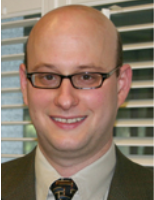 MICHAEL COHEN
MICHAEL COHEN
California’s Budget and Choices for the Future
THURSDAY, FEBRUARY 27, 2014
On January 9, 2014, Governor Jerry Brown unveiled his proposed 2014-15 budget for the state. Recent increases in personal income tax revenues have improved the state’s budget conditions significantly and the $151 billion proposal reflects an increase in general fund spending of $11 billion. The proposed budget would continue California’s recent progress toward a firmer fiscal footing by paying down some of the state’s “wall of debt” and proposing a $2.3 billion reserve. While critics praise these measures they argue that the proposed budget does not do enough to address California’s massive pension liabilities. As Director of the California Department of Finance, Michael Cohen directs the development of Governor Brown’s budget. He will provide an overview of key budget decisions and discuss the outlook for California’s fiscal future.
Michael Cohen was appointed as Director of the California Department of Finance by Governor Jerry Brown in September 2013. He serves as the Governor’s chief fiscal policy advisor. Prior to becoming Director, he served as Chief Deputy Director of the Department of Finance from 2011 to 2013. In this capacity, Mr. Cohen was the department’s lead contact with the state Legislature on the state budget. From 1997 to 2010, Mr. Cohen worked at the Legislative Analyst’s Office (LAO). While there, he served as a local government finance analyst, Director of State Administration, and Deputy Legislative Analyst.
Mr. Cohen earned a Master’s Degree in Public Affairs from the Lyndon B. Johnson School at the University of Texas and a Bachelor’s Degree in Urban Studies from Stanford University.
Fall 2013
BRUCE CAIN, MARGUERITE LEONI
w/ KEN MILLER, moderator
The Voting Rights Act after Shelby County v. Holder
TUESDAY, NOVEMBER 19, 2013
In Shelby County v. Holder (2013), a sharply divided U.S. Supreme Court declared Section 4(b) of the Voting Rights Act unconstitutional. CMC Associate Professor of Government Ken Miller will moderate a discussion between Bruce Cain and Marguerite Leoni, two leading experts on the Voting Rights Act, on the history of the Act, the issues decided in this case, and the consequences of the court’s ruling for elections in the United States. Sponsored by the Rose Institute of State and Local Government.
Bruce E. Cain is a Professor of Political Science at Stanford University and Director of the Bill Lane Center for the American West. He received a B.A. from Bowdoin College (1970), a B Phil. from Oxford University (1972) as a Rhodes Scholar, and a Ph.D. from Harvard University (1976). He previously taught at Caltech and U.C. Berkeley, where he served as Director of the Institute of Governmental Studies 1990-2007. He was elected the American Academy of Arts and Sciences in 2000 and has won awards for his research (Richard F. Fenno Prize, 1988), teaching (Caltech 1988 and U.C. Berkeley 2003) and public service (Zale Award for Outstanding Achievement in Policy Research and Public Service, 2000).
Marguerite Leoni is a partner at Nielsen Merksamer Parrinello Gross & Leoni LLP, specializing in law and civil litigation relating to elections, redistricting and voting rights questions, school district reorganization law, campaign, government and initiative/referendum law including appellate practice and extraordinary writ proceedings. Ms. Leoni is a nationally renowned redistricting and voting rights expert with expertise in administrative preclearance practice under Section 5 of the Federal Voting Rights Act and Section 5 enforcement litigation. Ms. Leoni graduated from the University of California, Berkeley. She received her law degree from the University of California, Hastings College of the Law. Ms. Leoni has been a guest lecturer on the Voting Rights Act at Hastings College of the Law and has spoken at numerous forums concerning voting rights and election issues.
TOM RIDGE
Boston and Beyond: Homeland Security and the Hometown
THURSDAY, OCTOBER 31, 2013
The Boston Marathon bombings of last April brought renewed attention to the issue of terrorism within the United States. While federal authorities played an important role in breaking the case, state and local police were also crucial. As the former Governor of Pennsylvania and the first Secretary of the federal Department of Homeland Security, Tom Ridge is uniquely qualified to discuss the role of state and local governments in fighting terrorism. Governor Ridge will survey the relationship between them and the federal government, how that relationship has developed, and where it is headed.
Following the tragic events of September 11th, 2001, Tom Ridge became the first Assistant to the President for Homeland Security and, on January 24, 2003, became the first Secretary of the U.S. Department of Homeland Security, serving until February 2005. The creation of the country’s 15th Cabinet Department marked the largest reorganization of government since the Truman administration and another call to service for the former soldier, congressman and governor of Pennsylvania. During his DHS tenure, Secretary Ridge worked with more than 180,000-plus employees from a combined 22 agencies to create an agency that facilitated the flow of people and goods, instituted layered security at air, land and seaports, developed a unified national response and recovery plan, protected critical infrastructure, integrated new technology and improved information sharing worldwide. Mr. Ridge previously served in the U.S. House of Representatives for six terms from 1983 to 1995 and was twice elected Governor of Pennsylvania, serving as the state’s 43rd governor from 1995 to 2001. Governor Ridge’s aggressive technology strategy helped fuel the state’s advances in economic development, education, health care, and the environment.
Secretary Ridge is currently president and CEO of Ridge Global, an international security and risk management advisory firm, headquartered in Washington, DC. In March of this year, Secretary Ridge co-founded, with former White House cyber czar Howard Schmidt, the strategic advisory firm, Ridge Schmidt Cyber, an executive services firm that helps leaders in business and government navigate the increasing demands of cybersecurity.
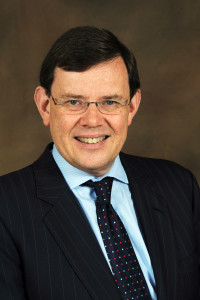 HENRY OLSEN
HENRY OLSEN
40th Anniversary of the Rose Institute
THURSDAY, OCTOBER 17, 2013
Henry Olsen, a lawyer by training, is the director of AEI’s National Research Initiative. In that capacity, he identifies leading academics and public intellectuals who work in an aspect of domestic public policy and recruits them to visit or write for AEI. Mr. Olsen studies and writes about the policy and political implications of long-term trends in social, economic, and political thought.
Spring 2013
CLARK LEE’04, SEEMA MEHTA, RAY REMY ’59 (moderator)
The Race for Los Angeles Mayor
WEDNESDAY, APRIL 24, 2013 | Lunch program
On May 21, 2013, Los Angeles residents go to the polls to elect a new mayor. They will choose between LA City Councilman Eric Garcetti and Wendy Greuel, the Los Angeles comptroller. The Rose Institute will host a panel discussion on the candidates, the race, and the challenges facing the new mayor.
KATHAY FENG, ROBERT HERTZBERG, DAN SCHNUR
Assessing Political Reform in California
MONDAY, APRIL 15, 2013 | Dinner program
TIM CONLAN
The Development of Federalism in the Obama Administration
THURSDAY, FEBRUARY 21, 2013 | Lunch program
Fall 2012
BOB STERN, TONY QUINN
California’s Choice: 2012 Ballot Initiatives
MONDAY, OCTOBER 29, 2012 | Dinner program
DANIEL DiSALVO
Unions and Direct Democracy in California
FRIDAY, OCTOBER 12, 2012 | Lunch program
JOHN CHIANG
Leadership and Accountability for California
MONDAY, SEPTEMBER 24, 2012 | Lunch program
Spring 2012
KEVIN McCARTHY
Leadership in Government
THURSDAY, APRIL 12, 2012 | Lunch program
CHUCK DeVORE’85, ERCA GRIEDER, ERIC HELLAND
As Texas Goes… How California Lost Its Edge
TUESDAY, APRIL 3, 2012 | Dinner program
JOEL KOTKIN
Class in California
MONDAY, JANUARY 30, 2012 | Dinner program
Fall 2011
DEAN VOGEL, JED WALLACE, JEFF STARK P’11, JULIA BROWNLEY, DAVID ABEL’68
Is California K-12 Education in Crisis? If So, What Do We Do About It?
THURSDAY, NOVEMBER 10, 2011 | Dinner program
JOHN DINAN
Standing Up to Washington: State Resistance to Federal Policy, Past and Present
THURSDAY, OCTOBER 27, 2011 | Lunch program
DAN WALTERS
Is California Governable?
TUESDAY, OCTOBER 11, 2011 | Dinner program
TOM CAMPBELL
Uneasy Compromise
FRIDAY, SEPTEMBER 30, 2011 | Lunch program

 There is a dilemma of contemporary American political reform. On one hand, widespread concern about American democracy prompts calls for changing American political institutions. On the other hand, a great deal of recent scholarship paints a very negative picture of the effectiveness of much of that reform agenda over the last century. So, is there a path forward, particularly in light of the recent election?
There is a dilemma of contemporary American political reform. On one hand, widespread concern about American democracy prompts calls for changing American political institutions. On the other hand, a great deal of recent scholarship paints a very negative picture of the effectiveness of much of that reform agenda over the last century. So, is there a path forward, particularly in light of the recent election?